-
Posts
10,725 -
Joined
-
Last visited
Content Type
Events
Forums
Downloads
Quizzes
Gallery
Blogs
Everything posted by Social Media
-
In a shocking and violent incident that has left the military community and the public reeling, a highly experienced and respected Lieutenant Colonel in the British Army was brutally attacked outside his home. The victim, identified as Lieutenant Colonel Mark Teeton, was left seriously injured after being stabbed repeatedly in what authorities have described as an attempted murder. Lt Col Mark Teeton, who has served the British Army for over two decades, is a long-standing and dedicated officer. For the past six years, he has held the position of course manager at the 1 Royal School of Military Engineering Regiment. His contributions to the military have been significant, and he has earned a reputation as a committed leader and a dedicated servant to his country. The attack occurred on a quiet Tuesday evening near Lt Col Teeton's residence, which is located close to Brompton Barracks. As he was heading home, a man reportedly ran up behind him, pulled him to the ground, and began stabbing him repeatedly. The assailant, later identified as 24-year-old Anthony Esan, was arrested shortly after the incident near his home in Rochester, which is not far from the scene of the crime. The horrifying nature of the attack has stunned the local community and the nation at large. Lt Col Teeton, who is in his 40s and a father of two, was airlifted to a nearby hospital where he remains in a serious but stable condition. The quick response by emergency services undoubtedly played a crucial role in saving his life, but the psychological and emotional toll of such a violent assault will likely be long-lasting. Anthony Esan, the man accused of carrying out this brutal attack, has been charged with the attempted murder of Lt Col Teeton. He has also been charged with possessing an offensive weapon in a public place. Esan made his first appearance in Medway Magistrates’ Court on Thursday, where he was seen wearing a grey T-shirt. During the hearing, the details of the vicious attack were laid bare, with Prosecutor Rajni Prashar providing a chilling account of what transpired that evening. “A member of the public called 999 to report a male had been stabbed. It was then reported that the victim was a soldier in uniform,” Prashar told the court. She went on to describe how Esan was seen “running up behind” Lt Col Teeton before pulling him to the ground and stabbing him “repeatedly.” Esan was remanded in custody following his court appearance and is scheduled to appear next at Maidstone Crown Court on August 22. As the legal process continues, there is a palpable sense of shock and disbelief that such a horrific act could occur, especially against a member of the armed forces who has dedicated his life to serving his country. Lt Col Teeton's career in the military is marked by a series of achievements and contributions that have earned him respect and admiration among his peers. According to his LinkedIn profile, his service in the armed forces dates back to 2001, and over the years, he has taken on various roles that have showcased his leadership skills and commitment to the military's mission. Earlier this year, Lt Col Teeton participated in the D-Day Challenge in Normandy, a grueling event that commemorates the bravery and sacrifice of soldiers during World War II. The challenge also serves as a fundraiser, and Lt Col Teeton managed to raise nearly £2,500 for Combat Stress, a charity dedicated to providing mental health support for veterans. In the lead-up to the event, he expressed his deep respect for both past and present servicemen, writing: “In honour of our forefathers as well as current servicemen who have bravely fought to protect our way of life, I will be taking on the D-Day Challenge to raise vital funds for life-changing mental health treatment for veterans.” After completing the challenging event, Lt Col Teeton posted a video in which he humorously recounted how he nearly passed out at the finish line, but emphasized that it was all worth it. “It was worthwhile... it’s a good amount of money to a fantastic charity,” he said, highlighting his unwavering commitment to supporting his fellow servicemen and women. The attack on Lt Col Teeton has elicited strong reactions from military leaders and political figures alike. General Sir Roly Walker, the head of the Army, condemned the stabbing in the strongest possible terms, calling it “horrific.” His sentiments were echoed by Prime Minister Sir Keir Starmer, who expressed his deep shock and outrage at the incident, stating that he was “shocked and appalled” by the senseless act of violence. As Lt Col Teeton continues to recover in the hospital, the thoughts and prayers of many are with him and his family during this difficult time. The military community, in particular, has rallied around one of its own, offering support and solidarity in the face of this tragic event. The case against Anthony Esan will proceed through the legal system, with many hoping that justice will be served for the heinous act committed against Lt Col Teeton. In the meantime, the incident serves as a stark reminder of the risks and dangers faced by those who serve in the armed forces, even when they are off-duty and away from the battlefield. The attack has also sparked conversations about the need for greater protection and support for military personnel, both during and after their service. As the nation grapples with the implications of this incident, the focus remains on Lt Col Teeton’s recovery and the pursuit of justice for the crime committed against him. Credit: The Independent 2024-08-24 Get the ASEAN NOW daily NEWSLETTER - Click HERE to subscribe
-
In recent weeks, the question of when it is appropriate to allow teenagers to embark on their first parent-free adventure has sparked heated debate among parents, especially after TV presenter Kirstie Allsopp revealed that she allowed her 15-year-old son to go Interrailing across Europe with a friend. While some see such experiences as crucial for building independence and confidence, others worry about the risks involved in letting their children venture out into the world without adult supervision. Dan Gregson, a 49-year-old teacher, faced this dilemma when his sons, aged 18 and 15, asked to go on their first trip without adults. Gregson admits he felt "very worried" even when they simply wanted to visit a skatepark in central London, and trips abroad were out of the question until now. His eldest son, who is 18, is planning to travel to Barcelona with friends next month, a prospect that still makes Gregson uneasy. "I know he’s sensible, it’s just other people I worry about," he says. "I worry that someone around him will start an argument. I went to Spain when I was 16, but it feels like the world has changed. There’s more aggression in the air now." The debate about the appropriate age for parent-free holidays has been reignited by Allsopp's recent decision, which she defended on social media. In a post on X (formerly Twitter), Allsopp shared, "My little boy has returned from 3 weeks inter-railing, he’ll be 16 on Wednesday so he went with a mate who’s already 16 due to hostel/travel restrictions, but they organised the whole thing; Paris, Brussels, Amsterdam, Berlin, Munich, Marseille, Toulouse, Barcelona & Madrid." She emphasized the importance of fostering independence in children, writing, "In this increasingly risk-averse world it’s vital that we find any ways we can to give our children the confidence that only comes from trusting them. If we’re afraid, our children will also be afraid. If we let go, they will fly." Gregson takes a more cautious approach, questioning why his children want to travel alone in the first place. He believes in gradually building up to such experiences to reduce anxiety for both the parents and the child. For him, 17 is the youngest age at which a child should be allowed to leave the country without an adult, with 18 being even better. He plans to enforce strict rules for his son, such as daily texts, something that is already part of their routine at home. However, not all parents share Gregson's cautious stance. Kate Row-Ham, a 48-year-old personal trainer from Brighton, allowed her eldest son to go to Newquay with six friends when he was just 15. "I think it all depends on the person and their level of maturity and how far they are going," she says. Row-Ham believes that a confident, streetwise teenager could be ready to travel independently as early as 13. Although she was nervous when her son first went away after his GCSEs, the availability of apps like Snapchat and Life360 made it easier for her to stay in touch. Since then, she has allowed her son to travel to Ibiza and Mallorca with friends, and she is now preparing to let her 15-year-old daughter go to Newquay with her mates next summer. Row-Ham offers her children practical advice for staying safe while traveling: "I’ll give her the same advice I give my son which is to keep her phone on, call me if you have any issues, never let anyone buy you drinks, and to never leave your wingman/woman. I also remind them how important it is to enjoy themselves and have a good time. It’s good to give kids confidence and let them know you trust them." Legally, children over the age of 12 can fly with parental consent, but there is no minimum age for traveling alone by train within the UK or on an Interrail pass in Europe. This leaves the decision of when to allow independent travel largely in the hands of parents. Psychologist Anna Mathur, who specializes in parenting and is the author of "How To Raise A Happier Mother," acknowledges that there is no definitive age at which it becomes appropriate for a child to travel alone. "It all comes down to the individual child and parent, and the relationship between them," Mathur explains. Mathur suggests that parents consider several factors when making this decision, including their child’s friendship group, how far away they will be traveling, and their child’s personality and life experiences. "If it were a teenager with a large group of friends who I didn’t know and who is quite immature and might not cope when those relationships come under pressure on holiday, I wouldn’t feel comfortable letting them go," she says. However, Mathur also encourages parents to examine their own anxieties and determine whether their fears are based on valid concerns or on past experiences. "Is it a valid fear or is it a projection of something that happened to you?" she asks. "It’s important not to let your own hang-ups stop your child from enjoying freedoms which they might actually deal well with." While ground rules are important, Mathur advises against making them too restrictive. "It has to be a collaborative agreement otherwise you’ll just get pushback," she warns. Some parents find ways to compromise, as Harriet Morley from Hampshire did when she allowed her 16-year-old daughter to go away with three friends to a house in Wales. Morley felt comfortable with the arrangement because she knew the owner of the house and there were people nearby who could keep an eye on the group. However, she admits that she might not extend the same freedom to her son when he reaches the same age. "My daughter is very sensible, and I knew that her and her friends would respect the house," Morley explains. "They’ve earned our trust to allow us to let them have this adventure." For parents who decide to say no to a post-exams trip, psychologist Mathur advises that they prepare for their teenager to be angry and upset. "Even if you explain to your teenager really clearly why they can’t go, they’ll probably still be angry and upset," she says. "But that’s OK – it’s important to hold those boundaries for your child. And to know that you’re not saying ‘no, never’ you’re saying ‘not yet’." Kate Row-Ham reflects on her own teenage holidays to Cornwall as "amazing experiences" and feels it would be a shame to deprive her children of similar opportunities. "They have to learn some life lessons themselves," she concludes. Credit: Daily Telegraph 2024-08-24 Get the ASEAN NOW daily NEWSLETTER - Click HERE to subscribe
-
Kamala Harris took the stage on Thursday night to formally accept the Democratic presidential nomination, marking a historic moment as the first woman of color to achieve such a milestone. Her speech, while hitting all the critical notes her campaign aimed to cover, was largely marked by its lack of groundbreaking rhetoric and its adherence to established themes. For approximately 45 minutes, Harris shared her personal background, her vision for the future, and her stance on key issues, offering a glimpse into what her leadership would look like if she were to win the White House. One of the primary objectives of Harris’s speech was to connect with voters by highlighting her middle-class roots. While many Americans are familiar with who she is, fewer know the details of her upbringing and the values that shaped her. Harris took the opportunity to recount her mother’s journey as an immigrant from India and shared how her parents met and eventually divorced. She emphasized her childhood in a working-class neighborhood in Oakland, California, painting a picture of a modest but fulfilling upbringing. “The middle class is where I come from,” Harris stated, reflecting on the discipline and frugality instilled by her mother. “My mother kept a strict budget. We lived within our means. Yet, we wanted for little. And she expected us to make the most of the opportunities that were available to us.” Harris also touched on her decision to pursue a career in law, framing it as a natural progression from her early days in the courtroom to her role as a public servant. “My entire career, I have only had one client,” she said. “The people.” While Harris outlined her personal story, she also attempted to present a vision for America’s future. She called for unity and a move beyond the “bitterness, cynicism and divisive battles” that have come to define modern American politics. However, the speech provided few concrete details about how this vision would be realized. Vague calls for unity and a new path forward are common in political speeches, but Harris’s remarks did little to differentiate her policy proposals from those of past candidates. When she did address specific issues, she did so in broad terms, mentioning a focus on lowering the costs of “everyday needs” such as healthcare, housing, and groceries. She also highlighted the importance of abortion rights, framing the issue as essential to preserving individual freedom—a theme that has been recurrent throughout the Democratic convention. Despite these mentions, Harris positioned herself as a center-left moderate, aligning closely with the policies of her predecessor and current boss, Joe Biden. “Everywhere I go, in everyone I meet, I see a nation ready to move forward,” she said. “Ready for the next step, in the incredible journey that is America.” Yet, the specifics of that next step remain undefined. In addressing foreign policy, Harris devoted particular attention to the ongoing Gaza war, a topic that has drawn significant controversy. Pro-Palestinian protesters outside the convention underscored the contentious nature of this issue. In her speech, Harris reiterated the Biden administration’s stance, pledging to work around the clock to secure a hostage deal and ceasefire. “President Biden and I are working around the clock,” she said, “because now is the time to get a hostage deal and ceasefire done.” Harris also reaffirmed her commitment to ensuring that Israel has the means to defend itself, while acknowledging the suffering of Palestinians. “The scale of their suffering is heartbreaking,” she noted, though her comments were unlikely to appease the protesters outside. For them, Harris’s speech may have reinforced the belief that her presidency would represent a continuation of Biden’s policies on the Gaza conflict. Finally, Harris did not shy away from addressing the threat posed by her Republican opponent, Donald Trump. Echoing the sentiments of former President Barack Obama and former First Lady Michelle Obama, who had criticized Trump earlier in the week, Harris described Trump as an “unserious man” whose return to the White House would have “extremely serious” consequences. She referenced the January 6th attack on the US Capitol by Trump supporters and mentioned his criminal convictions. Harris also took aim at the Heritage Foundation’s Project 2025 blueprint, a plan for a future Republican presidency that Trump has disavowed but which was drafted by his advisers. According to Harris, the plan seeks to “pull our country back into the past,” a contrast that she used to draw a clear line between the future she envisions and the one Trump represents. This theme of the future versus the past has been central to Harris’s campaign, allowing her to distinguish herself not only from Trump but also from the less popular aspects of Biden’s presidency. In conclusion, Kamala Harris’s convention speech was a blend of personal storytelling and political messaging. While it succeeded in presenting her as a relatable figure with a compelling personal history, it fell short in offering detailed policy proposals or bold new ideas. Harris’s rhetoric was largely in line with the broader Democratic agenda, leaving little room for surprise or innovation. As the campaign progresses, it remains to be seen whether this approach will resonate with voters or if they will seek more substantive answers to the challenges facing the nation. Credit: BBC 2024-08-23 Get the ASEAN NOW daily NEWSLETTER - Click HERE to subscribe
-
During a week intended to celebrate the successes of the Democratic Party, Democrats sought to confront and reframe one of their most significant political vulnerabilities: immigration. At the Democratic National Convention (DNC), speakers attempted to reverse the narrative on Republican criticisms of the Biden administration’s immigration record, commending the administration’s efforts and portraying Vice President Kamala Harris as "tough as nails" on the issue. Republican leaders, including former President Donald Trump, have consistently focused their attacks on the Biden administration's handling of the border. They have particularly targeted Vice President Harris, labeling her as a "failed border czar" due to her role in managing the immigration crisis. While the Biden administration did witness record numbers of migrant detentions at the border, recent data shows that the number of unlawful crossings has decreased for five consecutive months. Democrats have attributed this decline to the administration’s recent actions to curb illegal immigration, including an executive order signed by President Joe Biden in June that empowers U.S. immigration officials to deport migrants without processing their asylum claims. A recent poll conducted by CBS, the BBC’s U.S. partner, revealed that 48% of likely voters believe that border crossings will increase if Kamala Harris becomes president. In contrast, a significant 72% of respondents said they believe crossings would decrease under a Trump administration. This issue took center stage at the DNC, where several speakers defended Harris's record and criticized Trump for obstructing a bipartisan border security deal that failed to pass in Congress earlier this year. “Let’s be clear, the border is broken,” stated New York Congressman Tom Suozzi, who has been a vocal advocate for stricter border security and more rigorous asylum laws. Suozzi’s remarks echoed a sentiment often expressed by Republicans who have criticized Biden's immigration policies. His comments, along with those of other Democrats, indicated a shift in the party's messaging toward a tougher stance on immigration—an issue historically seen as a political weakness for them. Suozzi further praised Harris, stating that she "joyfully accepts the challenge to work across party lines, to secure our border, to treat people like human beings." The Trump campaign has relentlessly attacked Harris for her role in shaping the administration’s immigration policy, branding her as an ineffective "border czar." As Vice President, one of Harris’s initial diplomatic assignments was to address the economic conditions in Central America that were driving a surge of migrants to the U.S.-Mexico border. Connecticut Senator Chris Murphy, who led the Democratic efforts to negotiate the failed border security measure in Congress, lauded Harris as being "tough as nails" on illegal immigration. He refuted Republican accusations that Harris had "opened the border" to unchecked migration. "Kamala Harris knows we can be a nation of immigrants and immigration laws," Murphy said. "That's why, when she's president, she will bring that border bill back, and she'll pass it." Murphy placed the blame for the country’s immigration issues squarely on Trump, accusing him of sabotaging the border security bill to maintain his political leverage. "Trump killed that bill because he knew if we fixed the border, he'd lose his ability to divide us, his ability to fan the flames of fear about people who come from different places," Murphy asserted. His sentiments were echoed by California Representative Pete Aguilar, chairman of the House Democratic Caucus, who emphasized that voters should not have to "choose between a secure border and building an America for all." Aguilar added, "Under President Harris, we can and will do both." The DNC also showcased a video that highlighted the stricter border policies proposed in the failed bill, which would have provided funding for new border agents and technologies aimed at combating fentanyl trafficking. However, on the convention floor, some delegates expressed skepticism about the importance of immigration as an electoral issue, suggesting that many voters are more concerned with day-to-day challenges, despite polling data consistently indicating that immigration remains a top concern for many Americans. "Immigration is certainly an important issue," said Julie Johnson, a Texas delegate, state representative, and candidate for the House of Representatives in Washington. "But other people’s immigration does not affect whether they can go see a doctor, afford a home, or whether they have a good-paying job." Others were more cautious in their assessment. Illinois Democratic Representative Jonathan Jackson, the son of famed civil rights activist Jesse Jackson, told the BBC that while progress has been made, there is still much work to be done. He expressed hope that Harris would take immediate action on immigration if she were to win the presidency. "We’re going to have to deal with these migrant issues," Jackson stated, noting that economically depressed communities of color often bear the brunt of migrant influxes. "People don’t like to leave their dwellings without clothes or water or cash. But if the conditions are unbearable, they have to leave. I think she has to deal with [it on] day one," he added. In Chicago, a city that has received tens of thousands of migrants over the last two years, residents voiced mixed feelings. While many expressed sympathy for the migrants, there were also concerns about the strain on local resources. Naaman Martin, an elderly Chicago resident who plans to vote for Harris, acknowledged the government’s efforts to support migrants, saying, "They [the government] provided food, they provided housing, provided clothing. But for the homeless, they claim they can’t do nothing. It is what it is. It is not a voting issue for me." Alexandra Willis, a 29-year-old store owner and Harris supporter, shared her perspective, expressing empathy for the migrants while also lamenting the lack of legal pathways for them. "They made it all the way here from another country," she said. "They’re very talented. I’d hire them, but legally I can’t." For the migrants themselves, the ongoing political debate over immigration has been a source of frustration. As the DNC unfolded, several dozen predominantly Venezuelan migrants gathered at a shelter just a few miles away, waiting for volunteers to distribute donated snacks. Although they were only vaguely aware of the convention taking place, they were acutely familiar with the debates surrounding immigration, the border, and the portrayal of "migrant crime" in U.S. politics. Yelitza, a Venezuelan mother of four who fled her country after one of her sons was killed during a protest, expressed her frustration with the way migrants are often demonized by politicians. "The trip was extremely hard. The jungle. Criminals in Mexico. Cartel members wanted to rape my niece. I did the trip with four little kids," she said. "We’re not here because we like it, or because I want to. Everyone needs to understand that. My country is in a disastrous situation. We only came here to give our children a future." Credit: BBC 2024-08-23 Get our Daily Newsletter - Click HERE to subscribe
-
Taylor Swift recently opened up about the emotions she experienced following the cancellation of her Vienna concerts earlier this month due to a foiled terrorist plot. In a heartfelt post shared on Instagram, the global pop sensation expressed the profound impact the situation had on her, admitting that the incident filled her with fear and a deep sense of guilt, even as she found solace in the support of her fans. Swift had been scheduled to perform at Vienna’s Ernst Happel Stadium from August 8 to 10 as part of her highly anticipated Eras Tour, which has drawn massive crowds worldwide. The shows were expected to attract around 170,000 fans, eager to see the superstar live. However, just a day before the first performance, Austrian authorities announced that they had thwarted a terrorist attack aimed at the concert, forcing the cancellation of all three shows. The news was met with shock and disappointment by fans, but Swift remained silent on the matter for nearly two weeks. It wasn’t until after her final European tour date in London’s Wembley Stadium that she felt safe enough to publicly address the situation. "Having our Vienna shows cancelled was devastating," Swift shared in her Instagram post, reflecting on the emotional toll the cancellation took on her. "The reason for the cancellations filled me with a new sense of fear, and a tremendous amount of guilt because so many people had planned on coming to those shows." The decision to cancel the shows was not taken lightly. Barracuda Music, the event organizer, stated that they had "no choice but to cancel" in the interest of "everyone’s safety." The message was echoed by Swift’s team, who reassured fans that their tickets would be refunded. Despite the frustration and sadness of the moment, Swift noted that she was heartened by the outpouring of love and unity from her fans in the aftermath. "In cases like this one, ‘silence’ is actually showing restraint, and waiting to express yourself at a time when it’s right to," Swift explained, addressing her delay in speaking out. She emphasized that her primary concern during the ordeal was the safety of her fans and team. "My priority was finishing our European tour safely, and it is with great relief that I can say we did that." Details of the foiled plot revealed a chilling scheme, uncovered thanks to an alert from the U.S. intelligence community. Austrian officials disclosed that the main suspect, a 19-year-old Austrian national with North Macedonian roots, had confessed to planning an attack using knives and explosives. Authorities found radical Islamist propaganda from groups like ISIS and Al Qaeda on the suspect’s devices, along with bomb-making materials in his possession. A second suspect, a 17-year-old with Turkish and Croatian roots, was also implicated, having been arrested near the stadium where he had been employed by a company providing services at the concert. Both suspects had connections to terrorist material, and a third teenager was later arrested in connection with the plot. The situation brought to light Swift’s longstanding concerns about security at her concerts, fears that were exacerbated by previous attacks on music events, such as the Manchester Arena bombing and the Las Vegas concert shooting. In a 2019 interview with Elle magazine, Swift admitted that these tragedies had made her "completely terrified" to go on tour, knowing the challenges of ensuring the safety of millions of fans over an extended period. Her worries were so severe that she even began carrying military-grade bandage dressings designed for traumatic wounds. Swift’s father, Scott Swift, shared these concerns, as documented in her 2020 Netflix documentary "Miss Americana." In the film, he expressed his fear for her safety, particularly as she became more outspoken politically. Swift, however, was resolute in her decision to use her platform, despite the risks involved. In her recent Instagram post, Swift extended her gratitude to the authorities who worked tirelessly to protect her and her fans, ensuring that her European tour could conclude without further incident. "My team and I worked hand in hand with stadium staff and British authorities every day in pursuit of that goal, and I want to thank them for everything they did for us," she wrote. The Eras Tour has been a monumental success, with Swift making history as the first solo performer to sell out London’s Wembley Stadium eight times in a single tour. Performing to crowds of 92,000 each night, Swift praised her fans for the joy and energy they brought to the shows, which helped her regain a sense of "carefree calm" despite the underlying tensions. "To the fans who have seen us this summer, you’ll always have the most sparkling place in my memories," Swift concluded. "You were a dream to perform for, dance with, and share those magical moments with." As Swift looks back on the challenges and triumphs of her European tour, her reflections serve as a poignant reminder of the complexities artists face in an era where the threat of violence looms large, even in spaces meant for celebration and joy. Credit: NBC News 2024-08-23 Get our Daily Newsletter - Click HERE to subscribe
-
Yvette Cooper, the Home Secretary, has made a resolute commitment to intensify the UK's efforts against illegal immigration, pledging to detain more illegal migrants and execute a record number of deportations. This initiative marks a significant shift in the government’s approach, as Cooper aims to expand immigration detention centres to facilitate the removal of over 14,500 illegal migrants within the next six months. This ambitious target surpasses the removal rates seen since Theresa May’s tenure as prime minister in 2018. As part of this intensified effort, nearly 300 additional spaces will be created at two controversial immigration removal centres, where illegal migrants and foreign criminals are held prior to their deportation. The Home Secretary has already redeployed some 300 Home Office caseworkers since the election, specifically to track down, detain, and return illegal migrants. Moreover, up to 100 new specialist intelligence and investigations officers are being recruited to the National Crime Agency (NCA). These officers will collaborate closely with European agencies to target and dismantle people-smuggling gangs. The announcement of these measures on Wednesday is perceived as a strategic response to criticism regarding the government’s decision to discontinue the Rwanda deportation scheme. The scheme's termination had raised concerns that the UK lacked a deterrent against the increasing number of small boat crossings. However, Labour sources claim that their ongoing efforts to curb Channel crossings have already yielded positive results, with fewer migrants reaching British shores in small boats in the six weeks since the election compared to the same period in 2022 and 2021. A senior party source credited this reduction to the successful disruption of people-smuggling gangs' supply lines for boats, more aggressive tactics by French police on the beaches, and enhanced cooperation with European law enforcement agencies. Yvette Cooper stated, “We are taking strong and clear steps to boost our border security and ensure the rules are respected and enforced. Our new Border Security Command is already gearing up, with new staff being urgently recruited and additional staff already stationed across Europe. They will work with European enforcement agencies to find every route into smashing the criminal smuggling gangs organizing dangerous boat crossings which undermine our border security and put lives at risk. And by increasing enforcement capabilities and returns, we will establish a system that is better controlled and managed, in place of the chaos that has blighted the system for far too long.” The Home Office has confirmed that the additional 290 detention spaces will be created at the immigration removal centres in Campsfield, Kidlington, Oxon, and Haslar in Gosport, Hants. This expansion is intended to support the higher pace of removals. Officials are also exploring options for further increases in detention capacity, which currently stands at 2,300 spaces. These centres were reopened by the Conservative government despite local opposition and accusations that the practice of detention was “immoral.” Left-wing Labour MPs, including John McDonnell, the former shadow chancellor, and Diane Abbott, the former shadow home secretary, have signed a Commons motion condemning the “inhumane” detention of migrants at these facilities. Nevertheless, the Home Office asserted that Yvette Cooper is resolute in her determination to expand detention space to facilitate a “major increase in returns and enforcement of immigration and asylum rules.” Her goal is to achieve the highest rate of removals over the next six months, exceeding the two previous six-month highs of 13,410 in 2018 and 14,389 last year. The Home Office has reported that nine flights have already returned migrants since Labour assumed power, including the largest-ever chartered removal flight of 200 illegal migrants. Additionally, new returns agreements have been established with several countries, including Vietnam, which has seen the largest increase in Channel migrants, as well as Bangladesh, India, Pakistan, Nigeria, Serbia, and Georgia. These agreements follow the fast-track removal deal previously struck with Albania. The Home Secretary has yet to appoint the new head of the Home Office’s Border Security Command, which will integrate officers from the NCA, Border Force, and MI5 to combat people-smuggling gangs. The first tranche of 100 new NCA officers, announced on Wednesday, represents the initial phase of a broader recruitment drive aiming to enlist up to 1,000 officers. Hundreds of these officers will be stationed across Europe to collaborate with Europol and other agencies in dismantling people-smuggling operations at their source. This initiative is being funded by approximately £75 million saved from the cancellation of the Rwanda deportation scheme in its first year. According to Labour, the number of migrants crossing the Channel since the election, totaling 5,720, is 14 percent lower than the same period last year, which saw 6,524 crossings. It is also more than 47 percent lower than the same period in 2022, when 8,444 migrants made the crossing. The Home Office has also pledged to intensify its crackdown on companies employing illegal migrants, with fines of up to £60,000 per worker, criminal prosecutions carrying maximum penalties of five-year jail sentences, and business closure orders. However, James Cleverly, the shadow home secretary, has voiced criticism of these measures. “While more NCA resources and detention capacity are welcome, this is not nearly ambitious enough. Paired with their moves to cancel our deterrent, give an effective amnesty to thousands of illegal migrants, and failure to hire a head of their phantom border command, it doesn’t scratch the surface. It is time Labour offered a credible solution that will cut immigration and stop the boats,” Cleverly remarked, underscoring the ongoing political debate surrounding the UK’s approach to immigration and border control. Credit: Daily Telegraph 2024-08-23 Get our Daily Newsletter - Click HERE to subscribe
-
The Church of England, a cornerstone of British religious life for centuries, is undergoing a subtle yet significant transformation in how it communicates and identifies new worshipping communities. A recent report suggests that the word "church" is being increasingly replaced with terms that are perceived to be more relevant and modern, such as "community" and "worship." This change, while seemingly minor, reflects deeper currents within the Anglican Church as it seeks to navigate the complexities of faith in a contemporary context. The Centre for Church Planting Theology and Research conducted an insightful study into the language used by 11 dioceses to describe new worshipping communities. Traditionally, the establishment of a new group within the Church has been referred to as a "church plant." However, the report reveals that although 900 new churches have been initiated by these dioceses in the last decade, none of them have used the term "church plant" as their primary descriptor. Instead, there is a marked preference for language that emphasizes "worship," "congregation," and most notably, "community." Rev Dr. Will Foulger, the vicar of St Nicholas in Durham and the author of the report, observed that out of the 11 dioceses studied, six primarily used the term "worship" to describe their new projects, two used "congregation," and seven preferred "community." This shift in terminology suggests a deliberate move towards language that resonates more with modern sensibilities, potentially broadening the appeal of these new initiatives. However, this trend has not been without its critics. Dr Giles Fraser, the vicar of St Anne’s in Kew, expressed concern over what he sees as a "misplaced desire to be relevant and modern-sounding." In a candid critique published on UnHerd, Dr Fraser lamented, "It is as if the Church has given up on church. Not since Prince became Squiggle has there been such a daft revision." His remarks highlight the tension between embracing modernity and maintaining the rich traditions that have long defined the Church of England. Dr Fraser also warned that the adoption of these new forms of worship has been "ruinously expensive" for the Church, cautioning against the abandonment of traditional parish churches in the pursuit of modern relevance. The report further uncovered that 10 out of the 11 dioceses involved in the study employed the concept of "culture change" to describe the integration of these new initiatives within their diocesan framework. This suggests that the Church of England may be intentionally moving away from using the word "church" as part of a broader cultural rejuvenation. Dr Foulger posited that the term "church" might no longer be comprehensive enough to capture the essence of what these dioceses are trying to achieve. He suggested that the phrase "new things" might better reflect the innovative nature of these projects. A spokesman for the Church of England provided further context for this linguistic shift, explaining that one reason why the term "church" appears less frequently in descriptions of "new worshipping communities" is that these forms of worship often exist outside of traditional church buildings. This evolution is evident across the country, where new communities have emerged in diverse and sometimes unconventional settings. For instance, at St Barnabas in Ealing, a "Shh free" mass welcomes families with young children, allowing them to participate in worship without the usual expectations of silence. In east London, All Hallows Bow has introduced a "silent disco worship" within an existing church, attracting young adults to a new form of communal worship. Meanwhile, the Diocese of Worcester has embraced outdoor worship, with congregants in the Teme Valley South opting for countryside walks that include Bible readings and prayer rather than traditional church services. Despite these innovations, the Church of England maintains that these communities are as much a "church" as any other form of worship. "These communities often meet in existing church buildings, attracting additional worshippers alongside traditional congregations, but they are as much 'church' as any other form of worship," a Church of England spokesman stated. He added that, theologically, a church is defined as "a community of people who, together, live in relationship with God through Jesus Christ." This definition underscores the idea that the essence of a church lies in the communal pursuit of faith, regardless of the physical or linguistic form it takes. In his report, Dr Foulger acknowledged that this change in language is compelling the Church to "redefine what we think a church is in the Church of England." He also recognized that this shift has led to a sense of alienation among certain parts of the Church, particularly those for whom fidelity to traditional ecclesial forms and practices is central. This ongoing debate reflects the broader challenge faced by the Church of England as it seeks to balance tradition with innovation in a rapidly changing world. Financially, the Church of England has invested heavily in these new initiatives. Since 2014, the Church Commissioners have awarded £82.7 million to dioceses specifically for the purpose of starting new churches and religious communities. This investment is set to continue, with the Church announcing plans in 2021 to establish more than 10,000 new worshipping communities over the next decade. A Church of England spokesman defended this funding strategy, noting that "significant investment has supported parish renewals, front-line ministry roles, and children’s and youth workers across various church traditions." This commitment to funding both traditional and new forms of worship highlights the Church's dual approach to maintaining its historical roots while also adapting to contemporary needs. In conclusion, the Church of England's evolving language around the concept of "church" reflects a broader cultural shift within the institution. As the Church seeks to engage with modern society, it is experimenting with new forms of worship and community that challenge traditional notions of what it means to be a church. While this transformation is not without its critics, it also represents an opportunity for the Church to reach new audiences and remain a vital part of British spiritual life in the 21st century. The debate over the use of the word "church" is emblematic of the broader struggle to balance tradition and modernity in a rapidly changing world, a challenge that the Church of England will continue to navigate in the years to come. Credit: Daily Telegraph 2024-08-23 Get our Daily Newsletter - Click HERE to subscribe
-
The U.S. Department of Justice has launched a comprehensive criminal investigation into Americans who have collaborated with Russia's state television networks, reflecting a concerted effort to thwart the Kremlin's attempts to influence the upcoming presidential election in November. This investigation, which underscores growing concern over foreign interference in U.S. elections, has led to significant actions, including FBI raids on the homes of individuals connected to Russian media. Earlier this month, FBI agents executed search warrants at the residences of two high-profile figures associated with Russian state television: Scott Ritter, a former United Nations weapons inspector and vocal critic of U.S. foreign policy, and Dimitri K. Simes, an adviser to former President Donald J. Trump's 2016 campaign. Although no charges have been filed against either man, the searches suggest that the investigation could soon yield criminal charges, according to officials who spoke on the condition of anonymity. This investigation follows the Biden administration's official intelligence assessments, which indicate that Russia's state-run news organizations, including the global broadcaster RT, are collaborating with Russian intelligence agencies to influence elections worldwide. The Kremlin's efforts, which include disinformation campaigns targeting the November election between Donald Trump and Vice President Kamala Harris, have alarmed U.S. officials. For the third time, Russia's propaganda apparatus has aligned itself with Trump's candidacy, utilizing online news outlets and fake videos to undermine President Joe Biden and Vice President Harris. The investigation is particularly focused on potential violations of economic sanctions imposed on Russia following its invasion of Ukraine, as well as breaches of the Foreign Agents Registration Act (FARA), which mandates the disclosure of lobbying activities on behalf of foreign governments. The Department of Justice's actions are politically charged, echoing the contentious debates over Russia's interference in the 2016 presidential election. Moreover, the investigation's focus on Americans working with state-run news organizations raises potential First Amendment concerns, particularly regarding the protection of free speech. On July 29, the Office of the Director of National Intelligence issued a warning that Russia was exploiting both "witting and unwitting Americans" to disseminate narratives favorable to President Vladimir Putin's government. The statement highlighted that these individuals "post content on social media, write for various websites with overt and covert ties to the Russian government, and conduct other media efforts." However, the investigation is not targeting ordinary Americans who consume or share Russian state media content online; rather, it is concentrating on those who are intentionally spreading disinformation on behalf of Moscow. Scott Ritter, who has contributed writings to RT and other news organizations, described the hours-long search of his Delmar, New York, home on August 7 as an attempt to intimidate him for his political views on the United States, Russia, and the ongoing war in Ukraine. FBI agents and state police seized mobile phones, computers, and hard drives during the raid but did not arrest Ritter. "It's an absolute frontal assault on the Constitution of the United States," Ritter said in a phone interview, expressing his frustration and disbelief. The scope of the investigation remains unclear, as the Justice Department and other officials in Washington have declined to comment on its progress or future actions. However, the Biden administration's growing alarm over Russia's influence operations has led to an increased willingness to take decisive action. Last month, the Justice Department, in collaboration with Canadian and Dutch governments and Elon Musk's social media platform X, successfully dismantled a covert Russian campaign designed to sow discord in the United States and other countries. The operation resulted in the takedown of 968 inauthentic accounts that were operated using commercially available artificial intelligence tools. The FBI linked these accounts to Russia's Federal Security Service (FSB) and RT, underscoring the deep connections between Russian state media and the Kremlin's intelligence apparatus. Russia's state television networks, which broadcast in English and other languages, serve as a global platform for Putin's views, often portraying the United States and its allies as imperialist powers bent on global domination. Ritter, who traveled to Russia and occupied parts of Ukraine in January, noted that the warrant to search his home referenced an investigation related to FARA. This federal law requires Americans engaged in lobbying or political activities on behalf of foreign governments to disclose their work. Dimitri K. Simes, a Soviet-born American citizen, is also under investigation for possible violations of the International Emergency Economic Powers Act (IEEPA), which provides the legal basis for imposing economic sanctions. On August 13, FBI agents raided a 132-acre estate near the Blue Ridge Mountains in Virginia that Simes and his wife had purchased in July 2021. Simes, 76, has been a prominent figure in American foreign policy circles since emigrating from the Soviet Union in 1973. He served as an informal adviser on Soviet affairs to President Richard Nixon and later became the head of a think tank now known as the Center for the National Interest. In 2016, Simes hosted a speech by Trump, then a presidential candidate, in which Trump called for improved relations with Russia. Simes also introduced Trump to the Russian ambassador at the time and passed on what he believed to be compromising information about former President Bill Clinton to Trump's son-in-law, Jared Kushner, during the 2016 campaign. Although Simes was interviewed by special counsel Robert Mueller's team during the investigation into Russia's interference in the 2016 election, he was not accused of any wrongdoing. Simes stepped down from the Center for the National Interest in 2022 and has been in Russia since October of that year, according to an interview he gave on Sputnik, another Russian state television network. During the interview, Simes speculated that the FBI's search of his property was an attempt to silence anyone advocating for improved U.S.-Russia relations. He revealed that his bank accounts had been frozen, except for one used to deposit his Social Security checks, and expressed concern that the FBI had seized valuable paintings by Soviet and Russian avant-garde artists from his home. "It clearly is an attempt to intimidate, not only somebody from Russia, but just anyone who goes against official policies and particularly against the deep state," Simes said during the interview. Since 2017, the Department of Justice has required RT to register as a foreign agent under FARA, rather than as a news organization, reflecting the U.S. government's view of RT as an instrument of Russian state control. There is no established legal precedent that clearly defines whether journalists working for such organizations fall under the requirements of FARA. Ritter, in his interview, stated that he had been contributing articles to RT since 2020 and was compensated per article, earning between $150 and $300, which he described as the industry norm. He emphasized that the editorial control exerted by RT was no different from that of other news organizations, and he strongly defended his work as a journalist. However, Ritter's outspoken defense of Russia's invasion of Ukraine, which began in 2022, has drawn significant scrutiny. He has frequently echoed Russia's narrative that blames the United States and NATO for the conflict, a position that has only deepened suspicions about his motivations and affiliations. "The only reason why I can believe that they’re doing this," Ritter said, "is if there’s some national security interest where they believe somehow I am actively conspiring with Russia against the interests of the United States, that I have become more than just a propagandist, that I become something more like, you know, a weapon of disinformation." As the investigation continues, the legal and political ramifications of targeting individuals associated with foreign state media will likely intensify the debate over election security, free speech, and the appropriate measures to counter foreign influence in American democracy. The outcome of this investigation could have far-reaching implications, not only for the individuals involved but also for the broader landscape of U.S. foreign policy and domestic political discourse. Credit: NYT 2024-08-23 Get our Daily Newsletter - Click HERE to subscribe
-
In an unexpected moment during a rally in Asheboro, North Carolina, former President Donald Trump stepped out of a bulletproof enclosure set up by the Secret Service to personally attend to a supporter who had fallen ill due to the intense heat. The rally, which marked Trump's first outdoor event since the July 13 assassination attempt in Butler, Pennsylvania, featured heightened security measures, including a ballistics-glass panel at the podium and additional protective barriers flanking the former president's back and sides. The incident occurred mid-speech when Trump, 78, was interrupted by calls for medical assistance from the crowd. “What’s wrong?” Trump asked, directing his attention toward the disturbance. Upon realizing that a rally-goer required medical attention, Trump immediately requested assistance, saying, “A doctor, please,” and acknowledging the challenging conditions by noting, “It is very hot here.” As medical personnel moved to help a white-haired woman who had collapsed in the stands, Trump did something that surprised many—he left the safety of the bulletproof enclosure to offer the woman a comforting embrace. The moment was brief, but it was enough to prompt a swift response from the Secret Service, who quickly surrounded Trump as he moved toward the crowd, ensuring his protection as he broke protocol to connect with his supporter. Returning to the podium, Trump reflected on the dedication of his followers. “You know, they come two days, three days early, and it’s a lot. It’s a lot of stress,” he remarked, acknowledging the effort and devotion of those who attend his rallies. This rally was particularly significant given the recent assassination attempt, which had reportedly led the Secret Service to advise Trump against holding outdoor events. Despite the concerns, Trump’s affinity for open-air rallies remains strong, as they have become a hallmark of his presidential campaigns, drawing large crowds and allowing for a direct connection with his supporters. The event underscored the tension between ensuring the safety of a former president and maintaining the intimate, personal connection that Trump’s rallies are known for. As he continues to campaign, the balance between security and accessibility will likely remain a focal point for both Trump and his security team. Credit: NYP 2024-08-23 Get our Daily Newsletter - Click HERE to subscribe
-
Colin Cowan, the brother of a Jewish man murdered during the brutal October 7 attacks by Hamas, has leveled serious accusations of anti-Semitism against the Scottish National Party (SNP) following a recent decision by the Scottish government to suspend meetings with Israeli diplomats. Cowan, whose brother, Bernard Cowan, was killed by Hamas militants at his home in Kibbutz Sufa in southern Israel, expressed profound disappointment and outrage over the SNP's actions. He asserted that there was "no doubt" in his mind that the suspension was driven by anti-Semitic motives. The Scottish government's announcement on Monday that ministers would halt all diplomatic talks with Israel unless certain demands were met has sparked significant controversy. Colin Cowan accused Scotland’s First Minister, Humza Yousaf, of exploiting his grieving mother for a "photo opportunity" during a memorial service for the October 7 victims, where Yousaf was photographed embracing Mrs. Cowan. Cowan described this gesture as an "act of Jew-washing," pointing to what he perceives as a "blatant double standard" in the SNP's diplomatic conduct, particularly in comparison to the treatment of Turkey's President Recep Tayyip Erdoğan. Erdoğan's government has faced international criticism for its harsh crackdown on the Kurdish community and severe restrictions on judicial independence, freedom of speech, and women's rights in Turkey. Thousands of individuals have been prosecuted and sentenced for the crime of insulting the president. Despite these human rights concerns, Yousaf previously invited Erdoğan to Scotland, a move that has intensified Cowan's belief that the SNP's recent actions against Israel are rooted in anti-Semitism. Bernard Cowan was one of over 1,200 people killed in the surprise Hamas attack on October 7, which also saw around 250 hostages seized, according to Israeli officials. More than 100 hostages remain in captivity. In the aftermath of his brother's death, Colin Cowan has been vocal in his criticism of the SNP, particularly following the apology issued by Angus Robertson, Scotland's External Affairs Secretary, after he met with a senior Israeli diplomat earlier this month. Robertson was compelled to apologize after SNP MPs, MSPs, and party members expressed anger over the meeting, arguing that it undermined the party's condemnation of Israel’s actions in Gaza and its support for a separate Palestinian state. Some even called for Robertson's dismissal. In his apology, Robertson acknowledged that his decision to meet with Daniela Grudsky, Israel's deputy ambassador, was mistakenly interpreted by many as a normalization of relations between Scotland and Israel. He clarified that no further meetings with Israeli officials would occur "until such time as real progress has been made towards peace, unimpeded access to humanitarian assistance is provided, and Israel cooperates fully with its international obligations on the investigation of genocide and war crimes." Despite this, SNP ministers will continue to engage with Palestinian officials. First Minister John Swinney defended the decision, stating that Israel's conduct left "no further dialogue" possible. In an article published in The Herald, Colin Cowan criticized Yousaf's invitation to President Erdoğan during the COP28 summit in December, particularly given Erdoğan’s past statements labeling Israel as a "terror state" and Hamas as a "liberation group." Cowan also condemned the Scottish Government's decision to allocate £250,000 of taxpayers' money to the United Nations Relief and Works Agency (UNWRA), an organization he claimed had "directly supported the massacre on October 7 which killed my brother." Cowan's grievances extend beyond these specific incidents, as he questions the SNP's broader stance towards Israel, asking, "What is so objectionable about the world’s only Jewish state that leads so many to criticize it above that of any other country? For me, as with many in Scotland’s Jewish communities, there is no doubt about the answer." He firmly believes that anti-Semitism is at the root of the SNP's actions and lamented that the issue was "the worst it's ever been" in Scotland during his lifetime. Cowan revealed that his nephew, Bernard's son, has even asked him if he would consider moving to Israel due to the growing "anti-Jew hatred" in Scotland. "That may seem absurd, that Scottish Jews would consider leaving Scotland for Israel amid safety fears, but I assure you that it’s a conversation taking place in Jewish communities across our country," he added. The Scottish Council of Jewish Communities (SCoJeC) also weighed in on the issue, emphasizing that the Scottish Government "cannot in conscience deny the right of the victims to prevent the promised repetition of the atrocities of Oct 7." SCoJeC stressed that if the Scottish Government aspires to contribute to a resolution of the long-running Israeli-Palestinian conflict and supports a two-state solution, it must engage with both parties. A Scottish Government spokesperson responded to Cowan’s criticisms by expressing the First Minister's deepest condolences for Cowan’s loss. The spokesperson added that Yousaf would be grateful for the opportunity to meet with Cowan and his family. The spokesperson reiterated the Scottish Government's condemnation of Hamas' attacks on October 7 and expressed support for an immediate ceasefire and a two-state solution where Israelis and Palestinians can live in peace. Additionally, they confirmed that Swinney had held talks with SCoJeC and assured that the Scottish Government takes issues of anti-Semitism "extremely seriously." Humza Yousaf himself also responded to the controversy, stating, "My thoughts continue to be with families who are suffering due to the horrific terror attack by Hamas on October 7th, including the Cowan family, and families in Gaza who have been devastated by Israel’s horrendous actions, resulting in tens of thousands of innocent people being killed." Yousaf defended his participation in the October memorial service, where he embraced Cowan's mother, saying, "I am proud of my lifelong campaigning against hatred in all of its forms, and believe that Islamophobia and anti-Semitism are two sides of the same coin." However, Yousaf stood by the Scottish Government's decision to suspend diplomatic relations with Israel, insisting that "there are not normal diplomatic relationships with the government of Israel until they comply with their international obligations and cease killing civilians with impunity." This stance has further fueled the debate over the SNP's approach to Israel and the underlying reasons for the recent diplomatic freeze. As tensions continue to rise, the accusations of anti-Semitism have added a complex and emotionally charged dimension to the already contentious issue of Scotland's foreign policy towards Israel. Credit: The Times 2024-08-23 Get our Daily Newsletter - Click HERE to subscribe
-
A disturbing new report reveals that the Biden-Harris administration has lost track of more than 320,000 migrant children who crossed the U.S. border unaccompanied by parents. The Homeland Security Inspector General’s report, released on Monday, warns that these children, placed with "qualified sponsors" within the U.S., may now be at risk of sex trafficking, forced labor, and other forms of exploitation. As of May 2024, 291,000 of these children, who arrived in the U.S. as unaccompanied minors, were released without a scheduled immigration court date, making it nearly impossible to monitor their whereabouts. An additional 32,000 children, who were given hearing dates upon release by Immigration and Customs Enforcement (ICE), also failed to appear in court, as highlighted in the 14-page report covering the period from October 2018 to September 2023. Federal whistleblower Tara Rodas, who was initially recruited to assist the Department of Health and Human Services (HHS) with the surge of migrant children in 2021, expressed grave concerns about the situation. Rodas recounted her shock upon realizing that she was, in fact, placing these vulnerable children into the hands of traffickers and other dangerous individuals. "At the very beginning of the Biden administration, they stripped all the vetting out of the process," she stated, highlighting cases where sponsors, claiming to be relatives, were actually exploiting the children. In one particularly troubling case, Rodas encountered a 16-year-old girl whose sponsor falsely claimed to be her older brother. The girl appeared drugged, and her sponsor's social media posts suggested she was being exploited. Concerns are further heightened by reports that some non-family sponsors are hosting multiple migrant children, which Rodas describes as a major "red flag." In 2023 alone, 344 unaccompanied children were found living with non-family sponsors who were each responsible for at least three children. Dr. Jason Piccolo, a retired federal agent who previously exposed the government's release of children to potential criminals, described the situation as "deeply concerning." He called for immediate reforms, stating, "There needs to be an immediate standard operating procedure to track the status and whereabouts of every single unaccompanied migrant child across all involved agencies." The report also highlighted cases where children, released by the federal government, ended up working in exploitative conditions in slaughterhouses and factories. Rodas and other critics argue that a systemic failure within the government has allowed this situation to unfold. In one tragic instance, an MS-13 gang member, released into the U.S. as a minor, was accused of brutally raping and murdering Kayla Hamilton, a young autistic woman in Maryland, in July 2022. Hamilton's mother, Tammy Nobles, has blamed the federal government for failing to properly vet the alleged killer, noting that a simple check with El Salvadoran authorities would have revealed his gang affiliations. Nobles testified before Congress, criticizing HHS for its "operational neglect" and alleging that this neglect contributed to her daughter's death. She further condemned the agency for allowing the MS-13 member to live unsupervised with another illegal immigrant in a trailer park. Despite the alarming findings, the government watchdog report noted that only one of eight audited ICE offices made any attempts to locate the missing children. Rodas and others continue to raise the alarm, calling for urgent action to protect these vulnerable minors from further harm. Credit: NYP 2024-08-23 Get our Daily Newsletter - Click HERE to subscribe
-
Lancashire Police have euthanized an XL bully dog after it fatally attacked its owner, David Daintree, 53, in Accrington. The tragic incident occurred at a residence on Ashley Court, where police were called around 9:30 PM on Tuesday following reports of a dog attack. Upon arrival, officers found Mr. Daintree deceased and determined that the dog, still presenting a significant threat, needed to be destroyed to prevent further harm. Supt Marie Jackson expressed her condolences, stating, “This is a heartbreaking event, and our thoughts are with the victim’s family. We are thoroughly investigating the circumstances surrounding this incident and encourage anyone with relevant information to come forward.” Police have increased their presence in the area to conduct inquiries and address any concerns from the community. Specially trained officers are providing support to Mr. Daintree’s family during this difficult time. Credit: Daily Telegraph 2024-08-23 Get our Daily Newsletter - Click HERE to subscribe
-
In a chilling case that has haunted Australia for decades, a cult member who brutally killed her two-year-old daughter over an inability to properly complete chores has been sentenced to nine years in prison. The tragic story of Tillie Craig, who vanished from a remote religious commune in 1987, has only recently come to light, leading to justice for a crime long buried by the secrecy of a cult. Tillie Craig disappeared from the Ministry of God farm in New South Wales (NSW) in 1987, igniting a desperate, decades-long search by her father, Gerard Stanhope, who had been told his daughter was adopted. The heartbreaking reality was far more sinister. Tillie had been beaten to death with a plastic pipe by her own mother, Ellen Rachel Craig, when she was just two years old. Her small body was then allegedly cremated by the cult’s leader, her ashes scattered across the commune, erasing nearly all traces of her existence. Ellen Craig, now 62, was charged with her daughter’s murder in 2022 after a tip-off to police finally brought the truth to light. She later pleaded guilty to the lesser charge of manslaughter. When sentencing Craig on Wednesday, Justice Natalie Adams of the NSW Supreme Court expressed the profound tragedy of the case, stating that to call Tillie’s death a tragedy would be "a gross understatement." Justice Adams emphasized the grave betrayal inherent in the act, noting that Tillie "died at the hands of someone whose role it was to protect her." The grim details of Tillie’s last moments were recounted in court, revealing a disturbing culture of discipline within the commune. According to the agreed facts, children at the Ministry of God farm were required to perform chores regardless of their age. Punishment for perceived failings was harsh, often involving a piece of black pipe. On July 7, 1987, Tillie had been sweeping when her mother, unhappy with the quality of the work, beat her to death. Craig, then 25 years old, later brought her lifeless daughter inside, uttering in horror, "She’s stopped breathing" and "Oh no, no she’s gone." The court heard that after the brutal beating, Craig laid Tillie in a bathtub and waited for the cult’s leader, known as Alexander Wilon or "Papa," to return. When he did, Wilon prayed for the resurrection of the little girl, a futile and macabre ritual. Wilon then allegedly cremated Tillie’s body and scattered her ashes, forbidding the other cult members from ever speaking of what had happened. This act of silencing, combined with the destruction of evidence, ensured that the truth remained hidden for more than three decades. Wilon was later charged with being an accessory to murder, along with separate charges related to sexual assault allegations. However, due to his terminal illness, he has been declared unfit to stand trial, escaping legal accountability for his role in Tillie’s death. Following Tillie’s murder, Ellen Craig was expelled from the cult by November 1987. She fled to her home country of New Zealand, where she lived under several aliases for more than 30 years. Her past finally caught up with her in 2021 when she was arrested and extradited to Australia to face justice for her crime. During her sentencing, a segment of a letter written by Craig was read aloud in court, offering a glimpse into her remorse. In the letter, Craig apologized for her actions, stating, "something happened" to her as a mother while living at the farm. She expressed deep regret, writing, "My actions were horrible, terrible, horrific. I will never forgive myself for what I have done." Craig also acknowledged her guilt and the need for accountability, adding that she wanted "justice" for her daughter and was "at peace" with her imprisonment. For Tillie’s father, Gerard Stanhope, the sentencing marked the end of a long, painful chapter of uncertainty and grief. In a victim impact statement read to the court, Stanhope described the torment of not knowing his daughter’s fate for so many years. "I spent years... waking up every day with the hope in my heart that I would find her, and going to bed devastated that I was unable to do so," he recalled. The devastating truth—that his daughter had been dead all along—only came to light more than 30 years later, when Craig was arrested. The court’s decision will see Ellen Craig eligible for parole after six years in custody, in November 2027. While the legal proceedings have concluded, the sorrow and horror of Tillie’s story remain, a stark reminder of the destructive power of cults and the unimaginable suffering they can inflict on the innocent. Credit: BBC 2024-08-23 Get our Daily Newsletter - Click HERE to subscribe
-

The Democratic Convention and the Gaza Debate: Unity Under Threat
Social Media replied to Social Media's topic in World News
A post making false claims has been removed. From the landing page: "Any alleged factual claims must be supported by a valid link to an approved credible source." An off topic video has also been removed along with a trolling meme. The topic here is: The Democratic Convention and the Gaza Debate: Unity Under Threat -
Divers searching the wreckage of a superyacht that sank off the coast of Sicily have found the bodies of five of the six missing passengers. The tragic discovery comes after days of intense search efforts following the sinking of the yacht, known as the Bayesian, on Monday. The yacht was carrying 22 people when it capsized and sank in freak weather conditions. The Italian Coastguard has not yet formally identified the bodies recovered from the wreck, but the search has focused on locating four Britons and two Americans who were aboard the yacht. Among those missing are Mike Lynch, the UK tech entrepreneur whose wife owns the Bayesian yacht, his daughter Hannah Lynch, Jonathan Bloomer, the chairman of Morgan Stanley Bank International, and his wife Judy Bloomer. The first two bodies were brought ashore at Porticello harbor on Wednesday afternoon, with two more bodies recovered later that evening before the search was paused as night fell. The search for the remaining missing passenger continues. The Bayesian sank in the early hours of Monday, about 700 meters off the coast of Sicily. It is believed that the vessel was struck by a waterspout—a tornado over the water—which caused it to capsize and sink to a depth of 50 meters (164 feet) on the seabed. The violent weather event caught the yacht and its passengers by surprise, leading to the tragic incident that has now claimed multiple lives. Throughout Wednesday, a steady stream of boats ferried divers to and from the search site as the recovery operation continued. The small quayside at Porticello was lined with emergency services personnel as the bodies of the missing were returned to shore. One body bag was seen being placed in the back of an ambulance before the sound of sirens filled the harbor as the vehicle, escorted by two police cars, departed from the port. Italian authorities have not yet identified the recovered bodies, despite media reports speculating on the identities of the victims. This delay is likely due to the ongoing search for the remaining passenger, as well as the legal requirement in Italy for the deceased to be formally identified by a family member or someone close to the victims before the deaths can be officially certified. Salvatore Cocina, the head of Sicily's civil protection agency, emphasized that while an investigation into the incident would take place, the immediate priority was to locate everyone who was on board the Bayesian vessel. The yacht, which was 56 meters long and flying a British flag, was carrying 10 crew members and 12 passengers when it sank. Of the 22 people on board, 15 survived, including a British mother who described holding her baby girl above the surface of the sea to save her from drowning. The first body to be recovered from the wreck was that of the yacht's chef, Recaldo Thomas, a Canadian-Antiguan national. His body was found on Monday, shortly after the incident. Gareth Williams, a friend of Mr. Thomas, spoke to the BBC, sharing that he had known the chef for 30 years as they had grown up together in Antigua, where Mr. Thomas lived during yachting’s off-season. The passengers aboard the Bayesian were guests of Mike Lynch, the founder of the software giant Autonomy. The group was reportedly on the yacht to celebrate Lynch's acquittal in a massive U.S. fraud case. In June, Lynch was acquitted of multiple fraud charges related to the $11 billion (£8.6 billion) sale of Autonomy to U.S. computing giant Hewlett-Packard in 2011. In addition to the recovery efforts, inspections of the yacht's internal hull were conducted on Wednesday morning. A team of four British inspectors from the Marine Accident Investigation Branch (MAIB) arrived in Sicily to assist with the investigation. The depth of the wreckage has posed significant challenges to the rescue teams, as the yacht is lying on its side at the bottom of the seabed, with its access points blocked by debris. Italian rescue services have reported that the team of specialist divers has been hampered by these difficult conditions. The wreck is located at a depth where ambient light is minimal, making the situation even more perilous for the divers. Professional diver Andy Goddard, speaking before the bodies were recovered, described the conditions as "pretty dark," with limited visibility and debris floating around, creating an environment akin to being in a washing machine. "It's really dangerous for the diver," he told BBC Radio 5 Live. As the search continues for the final missing passenger, the tragedy has cast a somber shadow over the region. The investigation into the cause of the accident is expected to take time, with authorities focusing on ensuring that all those affected by the disaster are accounted for. The loss of life has been deeply felt by those who knew the victims and by the wider community, as the full impact of this maritime tragedy becomes apparent. Credit: BBC 2024-08-22 Get our Daily Newsletter - Click HERE to subscribe
-
On a tense night in Chicago, as anti-Israel protesters clashed with police officers outside the Israeli consulate, which is located just a couple of miles from the United Center, where the Democratic National Convention was taking place. The demonstrators, who were chanting "Free, free Palestine" and waving Palestinian flags, attempted to break through a police line formed by officers in riot gear outside the building housing the consulate. Videos captured the chaotic scene as police officers were seen shoving demonstrators, with some being tackled to the ground before being taken into custody. The night saw at least eight arrests. Adding to the tension, some protesters set fire to an American flag in the middle of the street, an act that further inflamed the situation. As dusk fell, the protesters shifted their chants to, "CPD, go home or we will bring the war home!" indicating their readiness for a continued standoff with law enforcement. One speaker, amplifying the urgency and anger of the crowd, shouted into a microphone, "Make them feel what Gaza feels! Make the DNC feel what Gaza feels! This f–king empire needs to burn to the ground!" The intensity of the emotions and rhetoric highlighted the depth of the protesters' grievances, particularly regarding the situation in Gaza. The Chicago Police Department issued an order to disperse the crowd around 8:30 p.m. local time. However, the protests had already made their mark, both in the physical scuffles with police and the symbolic acts, such as the flag burning. Among the protesters was Mike Lehman, a 50-year-old Chicago resident, who held a sign that read, "make Israel pay all its war-murder costs now." Lehman expressed his desire for the Democratic Party to take a stronger stance against Israel, reflecting the sentiments of many who had gathered that evening. The protests coincided with the second night of the Democratic National Convention, during which several prominent Democrats, including Senators Chuck Schumer and Bernie Sanders, as well as former President Barack Obama, were slated to speak. The proximity of the protests to such a significant political event underscored the broader national and international implications of the unrest. The Israeli consulate in Chicago has been a focal point for demonstrations since the outbreak of war in Gaza on October 7. The consulate is located in a building connected to the Ogilvie Transportation Center, a key hub for commuters. On Tuesday, law enforcement had closed most of the entrances to the consulate, leaving only one entrance open to travelers, where armed officers were stationed. The Associated Press reported that many of the shops within the building were also closed in anticipation of potential unrest. Earlier in the day, a group of Israel supporters, including family members of hostages kidnapped by Hamas, gathered near the consulate at an art installation. They called for continued U.S. military support for Israel and urged action to free those still held captive by the militants. This gathering provided a stark contrast to the later clashes, illustrating the deep divisions within the community regarding the conflict. While pro-Palestinian protesters have been given an array of accommodations by the city, the Jewish protesters are only able to gather due to the donation of a private lot by an owner for their use. Even as pro-Palestinian protesters veered off approved routes and tore down security fencing, it will be the Jewish protesters who will reportedly remain confined to this private lot under the watchful eye of the Chicago Police Department. Josh Weiner, co-founder of Chicago Jewish Alliance, confirmed that the group was not granted permits, so all they could do is walk around such approved protests to “make our presence felt.” He added that “pro-Palestine protesters have gotten multiple permits, including a march, which seems to be a little bit weighted on one side.” For Chicagoans like myself, the treatment of the pro-Israel protesters at the DNC could not be more ironic or disturbing. As the Democratic National Convention continued, the protests served as a stark reminder of the ongoing and passionate debate surrounding U.S. policy in the Middle East, particularly regarding the Israeli-Palestinian conflict. The clashes in Chicago highlighted the deep divisions and the powerful emotions that the issue evokes on both sides. As the convention progressed, the city remained on high alert, with the potential for further demonstrations and unrest looming large. Credit: NYP 2024-08-22 Get our Daily Newsletter - Click HERE to subscribe
-
Former President Donald Trump recently clarified his stance on the federal regulation of abortion pills, and his position has ignited significant controversy among conservatives and anti-abortion activists. In an interview with CBS News, Trump declared that if re-elected, he would not use the 150-year-old Comstock Act to ban the mail delivery of abortion drugs, stating, “The federal government should have nothing to do with this issue.” This statement has been met with strong disapproval from many on the right, who view it as a betrayal of pro-life values. Prominent conservatives have labeled Trump's remarks as "nonsensical" and "cowardly," expressing concerns that his position could weaken support and enthusiasm among right-leaning voters in the upcoming election. Tony Perkins, president of the Family Research Council, was particularly vocal, stating, “It is not a pro-life position, it’s not an acceptable position, and it does not provide the contrast on this issue to the degree that we have had in the past between him and Kamala Harris. What President Trump is doing is suppressing his own support.” Trump's relationship with anti-abortion advocates has been complex, despite his role in appointing Supreme Court justices who played a pivotal part in overturning Roe v. Wade. This latest clash over his refusal to endorse a national abortion ban, along with his efforts to soften certain aspects of the GOP platform, has sparked further outrage from conservatives, including his former vice president, Mike Pence. The Trump campaign has yet to respond to the backlash. Meanwhile, abortion opponents have been exploring various legislative and legal strategies to restrict access to abortion pills, with many focusing on the Comstock Act as a potential tool. This law, originating from the 1870s and named after an official who opposed various forms of vice, prohibits the mailing of any "lewd or lascivious material," which includes any substance or instrument that could be used for an abortion. Some conservatives view the Comstock Act as a means of curtailing the distribution of abortion pills without the need for congressional approval. In 2023, Trump's running mate, Ohio Senator JD Vance, joined other members of Congress in urging the Justice Department to utilize the Comstock Act to prosecute those involved in the "reckless distribution of abortion drugs by mail." However, Trump's recent rejection of the Comstock approach has been perceived as hypocritical by many anti-abortion activists. They argue that his stance effectively endorses the actions of doctors and advocacy groups who mail abortion pills into states where they are banned, further complicating the legal landscape. Kristi Hamrick, chief policy strategist with Students for Life of America, criticized Trump's position, stating, “President Trump keeps saying that he wants to be out of the federal business of abortion. So, number one, stop funding it. And, two, end the federal prejudice in favor of this distribution.” Hamrick also warned that Trump's Comstock stance could undermine the GOP's reputation as the party of law and order, emphasizing, “We can’t ignore the rule of law and pick and choose the laws that we want to enforce.” Although the Comstock Act remains on the books, its scope has been significantly narrowed over the years. Lawmakers and judges have limited its application, and in 2022, the Biden administration issued a legal memo arguing that the law does not prohibit the mail delivery of abortion medication unless the sender intends for it to be used illegally. Despite efforts by Democrats in Congress to repeal the law, it continues to be a point of contention in the ongoing debate over abortion access. This is not the first time Trump has clashed with anti-abortion groups since leaving office. He has previously rejected calls for federal restrictions on abortion, blamed anti-abortion activists for electoral losses in 2022 and 2023, and led efforts to modify certain anti-abortion elements of the GOP platform. His recent comments have only deepened the rift between Trump and the anti-abortion movement. Conservatives were also frustrated by Trump's characterization of a recent Supreme Court ruling on abortion pills. The Court declined to roll back access to the pills but did not address the merits of the case, instead sending it back to lower courts for further consideration. Trump’s assertion that abortion pills are "going to be available" and that the Supreme Court had effectively endorsed this status quo further alienated his pro-life base. Lila Rose, founder of the anti-abortion group Live Action, expressed her disappointment with Trump's stance, saying, “Unfortunately, it seems like Trump doesn’t care about the pro-life base anymore. He came out recently and said that he supported access to these deadly abortion drugs, and that is horrific.” While many abortion opponents remain pessimistic about their chances of changing Trump’s mind, some activists are continuing to apply pressure. Students for Life has sent open letters to Trump and is engaging in "a lot of backdoor conversations" with his team. Rose, meanwhile, is lobbying Trump and other candidates to take a stronger pro-life stance, warning that failure to do so could cost them the election. “When Trump is publicly compromising, it’s deeply discouraging to pro-life and pro-family voters, and I think that he’s putting his own election in jeopardy,” Rose said. “Quite frankly, this is a losing strategy.” As the debate over abortion continues to evolve, Trump's latest remarks have only intensified the divisions within the conservative movement. The coming months will reveal whether these internal conflicts will have a lasting impact on the GOP’s electoral prospects and the broader fight over abortion rights in the United States. Credit: Politico 2024-08-22 Get our Daily Newsletter - Click HERE to subscribe
-
President Joe Biden has approved revisions to a classified nuclear strategy document that significantly alters Washington's approach to nuclear deterrence. For the first time, the strategy now prioritizes addressing China's rapidly expanding nuclear arsenal, signaling a major shift in U.S. defense policy. The document, titled "Nuclear Employment Guidance," was updated in March, marking a crucial development in the ongoing redefinition of global nuclear threats. The updates to this strategic document are highly classified, with only a few hard copies distributed to select national security and Pentagon officials. The New York Times reported on these changes, noting that the document is revised approximately every four years. No electronic versions exist, underscoring the sensitive nature of the information contained within. Hints of this strategic pivot were recently evident in public comments by senior Biden administration officials. In June, Pranay Vaddi, the National Security Council's senior director for arms control, disarmament, and nonproliferation, emphasized the need for a strategy that could simultaneously deter Russia, China, and North Korea. Speaking at the annual Arms Control Association meeting, Vaddi underscored the necessity of a multifaceted approach to nuclear deterrence in light of evolving global threats. Earlier this month, Vipin Narang, a former acting assistant secretary of defense for space policy, spoke of the recent updates to nuclear weapons employment guidance. Narang highlighted that the revisions were specifically designed to address the growing challenge posed by multiple nuclear-armed adversaries, with a particular focus on China's significantly expanding nuclear capabilities. Although the White House has not officially announced any changes to its nuclear deterrence strategy, the reports come at a time of heightened concern over potential nuclear threats from global adversaries such as China and Russia. The Pentagon's latest assessments indicate that Beijing now possesses over 500 operational nuclear warheads. This number is expected to surpass 1,000 by 2030, reflecting a rapid and concerning expansion of China's nuclear arsenal. The growing military collaboration between Russia, China, and North Korea, particularly in the context of Russia's ongoing war in Ukraine, has further exacerbated security concerns for the United States and its allies in the Indo-Pacific region. As these relationships deepen, the strategic environment becomes increasingly complex, requiring the U.S. to adapt its nuclear deterrence strategies accordingly. During his presidential campaign, former President Donald Trump repeatedly warned of an impending nuclear conflict, arguing that the U.S. could be heading toward a major nuclear confrontation. In an interview with Elon Musk, streamed live on X (formerly known as Twitter), Trump suggested that China might soon "catch up, maybe even surpass" the U.S. in terms of nuclear weapons capabilities. China's response to these claims was swift. Lin Jian, a spokesperson for the Chinese Foreign Ministry, addressed the issue at a press conference, stating that the "nuclear arsenal of the U.S. is way bigger than China's." Lin reiterated China's "no-first-use" policy, which commits the nation to not using nuclear weapons or other weapons of mass destruction as a first strike in warfare. This policy stands in stark contrast to the aggressive nuclear posturing that has characterized recent global discourse. The Pentagon's report from the previous fall provided a sobering assessment of the U.S.'s own nuclear capabilities. It revealed that the United States has about 3,700 nuclear warheads in its stockpile, with approximately 1,419 strategic nuclear weapons currently deployed. These figures illustrate the scale of the U.S.'s nuclear arsenal, which, despite China's rapid expansion, remains significantly larger. As the Biden administration continues to navigate this increasingly volatile global landscape, the recent updates to the "Nuclear Employment Guidance" reflect a broader recognition of the shifting balance of power. The focus on China underscores the growing challenge that Beijing's military advancements pose to U.S. national security and global stability. In this context, the revisions to Washington's nuclear strategy represent not just a response to immediate threats, but a long-term adjustment to the changing dynamics of international security. The coming years will likely see further developments in this area as the U.S. seeks to maintain its strategic edge in an increasingly multipolar world. As tensions with nuclear-armed adversaries continue to rise, the importance of a robust and adaptable deterrence strategy cannot be overstated. Credit: Newsweek 2024-08-22 Get our Daily Newsletter - Click HERE to subscribe
-
David Lammy, the UK's Foreign Secretary, is under scrutiny for what many see as a broken promise to officially accuse China of genocide in Xinjiang. Last year, Lammy had committed to declaring the actions of Xi Jinping’s regime against the Uighur Muslims in Xinjiang as genocide. This commitment followed Labour’s earlier support in the Commons in 2021 for such a declaration. However, recent developments suggest a shift in the government's stance, leading to widespread criticism. The situation in Xinjiang, where approximately one million Uighur Muslims have been forced into internment camps, has been widely condemned. Reports from the region describe severe abuses and political indoctrination, which many international observers and human rights organizations have labeled as crimes against humanity. The international community has been pressing for stronger action, and Lammy's initial promise was seen as a significant step in holding China accountable. When asked by The Telegraph whether the UK would officially accuse China of genocide, the Foreign, Commonwealth and Development Office (FCDO) refrained from using the term "genocide" and instead referred to the "repression" of Uighurs. An FCDO spokesman stated, "We are playing a leading role in pressing China to improve its human rights record and cease the repression of the Uighur people in Xinjiang. This includes raising our concerns at the highest levels of the Chinese government and coordinating efforts in international fora to hold China to account for human rights violations." This statement has fueled concerns that the UK government is stepping back from its previous commitments. The reluctance to use the term "genocide" is seen by critics as a significant shift in policy. This controversy comes on the heels of Labour's decision not to declare China a "threat," a promise that had been made in the Conservative manifesto by former Prime Minister Rishi Sunak. A week after his election, Labour leader Sir Keir Starmer had pledged to be "robust" with China and challenge it on human rights and security issues. However, recent actions by his government have raised doubts about the fulfillment of these promises. Adding to the criticism is the recent delay by Starmer's government in implementing a new law to monitor lobbyists from Russia and China. This delay has sparked fears that the scheme could be diluted or even scrapped, further weakening the UK's stance on foreign influence and human rights abuses. The backlash against Lammy and the Labour government has been swift and severe. A report published by global experts in 2021 accused the Chinese government of violating every provision of the United Nations genocide convention in its actions in Xinjiang. Sir Iain Duncan Smith, a former Conservative leader, expressed his concern, stating, "This is madness, and it is another backslide. This is very dangerous. They knew what the risks from China were when they were in opposition, and they made sure that the Conservative government, which hadn’t been brilliant on it, got the message. But now they are in government, they are in the hands of the Foreign Office. Those of us who are sanctioned by the Chinese government are now very worried that Labour is now starting to backslide on its previous commitments." Alicia Kearns, a shadow foreign minister and Tory MP, also voiced her disapproval, accusing Lammy of reneging on pre-election commitments. "David Lammy promised a Labour Government would formally recognize the atrocities faced by the Uyghurs as genocide, pursue justice for their plight through international courts, and fundamentally reassess the UK’s relationship with China within 100 days of taking office," Kearns said. "Instead, within 100 days, Labour has reneged on these promises. We were promised a tougher stance on China by Labour – now, even Conservative measures introduced with cross-party support are being dropped. Protecting ourselves from CCP influence is a generational challenge, not just one of many pre-election pledges to be reneged on once in office." China, for its part, has consistently denied allegations of human rights abuses in Xinjiang, claiming that its policies are necessary to combat religious extremism and terrorism. Despite these denials, the international community has remained largely unconvinced, with many calling for stronger actions to hold China accountable for its treatment of the Uighur population. As the controversy unfolds, Lammy and the Labour government face increasing pressure to clarify their position on China and to follow through on their promises. The debate over whether to label China's actions as genocide is not just a matter of semantics but a critical issue that could define the UK's foreign policy approach in the years to come. With criticism mounting from both political opponents and human rights advocates, the government’s handling of this issue will be closely watched, both domestically and internationally. Credit: Daily Telegraph 2024-08-22 Get our Daily Newsletter - Click HERE to subscribe Cigna offers a variety of health insurance plans designed to meet the minimum requirement for medical treatment coverage, with benefits reaching up to THB 3 million. These plans are tailored to provide comprehensive healthcare solutions for expatriates, ensuring peace of mind and access to quality medical services. To explore the full range of Cigna's expat health insurance options and find a plan that suits your needs, click here for more information.
-
Tensions are rising in the volatile South China Sea, where fresh confrontations between China and the Philippines have escalated the risks closer to the shores of a key U.S. ally. In the early hours of Monday morning, a series of collisions occurred between coast guard ships from the two nations, marking a significant escalation in the ongoing disputes over territorial claims in the region. The incidents unfolded in the dark of night, between 3 a.m. and 4 a.m. local time, when at least three collisions were reported near Sabina Shoal, an uninhabited reef located just 75 nautical miles from the Philippines’ west coast. According to the Philippine authorities, the first collision caused a significant hole, 3.6 feet in diameter, on the starboard side of a Philippine coast guard vessel. Only 16 minutes later, another Chinese coast guard ship rammed a different Philippine coast guard vessel twice, creating a gap 2.5 feet long and 3 feet wide on the port side. The Philippine government has squarely blamed China for these incidents, accusing the Chinese coast guard of aggressive and dangerous maneuvers. "We can fairly say that this is the biggest structural damage we have incurred as a result of the dangerous maneuvers carried out by the Chinese coast guard," said Jay Tarriela, a spokesman for the Philippine coast guard. China, however, has a different version of events, accusing the Philippine coast guard of deliberately causing the collisions. These latest confrontations are particularly significant because they occurred near Sabina Shoal, a location that has recently become a new flashpoint in the ongoing territorial disputes between the two nations. While previous confrontations have centered around Second Thomas Shoal, located about 30 nautical miles west of Sabina Shoal and roughly 100 nautical miles off the Philippines' west coast, Monday’s incidents mark a worrying shift in the focus of these disputes. Second Thomas Shoal, unlike Sabina Shoal, is a military outpost manned by a small detachment of Filipino marines. The area has been a source of tension for over a year, with China repeatedly trying to disrupt the Philippines’ resupply missions to the outpost. Despite an agreement reached in July between the two nations to ease tensions, disagreements have persisted, and Monday’s collision raises new questions about the durability of that deal. As the Philippines has adopted a more assertive stance against China’s expansive claims in the South China Sea, it has faced increased pressure from Beijing. This pressure has been exerted both diplomatically and through forceful actions at sea. Chinese vessels have employed various aggressive tactics around Second Thomas Shoal, including spraying water cannons, ramming Philippine ships, and even threatening Filipino military personnel with axes and knives. The Chinese coast guard is often accompanied by maritime militia boats, further outnumbering the Philippines in these encounters. While Sabina Shoal was not initially considered a major flashpoint like Second Thomas Shoal, tensions have been brewing there for months. China claims both sites, which lie within the Philippines’ 200-nautical-mile exclusive economic zone, as part of its broader claim to much of the South China Sea. However, a 2016 ruling by an international arbitral tribunal found that China’s claims have no legal basis—a ruling that Beijing has steadfastly rejected. In response to what it perceives as increased Chinese activity at Sabina Shoal, the Philippines has taken steps to assert its presence in the area. In mid-April, the Philippines deployed a large coast guard ship, the BRP Teresa Magbanua, for an extended stay at Sabina Shoal. This move was prompted by China’s increased deployment of maritime militia boats and research vessels to the area. In a briefing to journalists in May, the Philippine coast guard reported that Chinese research vessels had been observed at Sabina Shoal, sending divers to take measurements and make assessments of the area. The Philippines’ response included deploying small inflatable boats to monitor Chinese activities more closely. On at least one occasion, these boats were blocked by Chinese coast guard ships. The Philippine coast guard also reported the presence of Chinese navy vessels and helicopters, as well as a significant number of maritime militia boats at the site. Philippine divers tasked with studying the area also made a disturbing discovery: what appeared to be dead and crushed corals dumped underwater at various locations around Sabina Shoal. The Philippine coast guard warned that this could be a precursor to possible land reclamation by China—a tactic that Beijing has used before in the South China Sea, where it has constructed artificial islands that now serve as military bases. "If we don’t monitor and guard this, maybe in the following months, we’ll be shocked again that in Sabina Shoal, they’ve expanded the island," Tarriela warned during the May briefing. In response, China’s Foreign Ministry dismissed the Philippine assertions as "sheer rumor" and accused Manila of spreading "irresponsible claims designed to vilify China and mislead the international community." Over the months following these accusations, China has continued to pressure the Philippines, urging Manila to withdraw its vessels from Sabina Shoal. The situation came to a head on Monday when the two Philippine coast guard ships involved in the collisions were en route to resupply a different Philippine site in the South China Sea. The ships were passing near Sabina Shoal when they encountered the Chinese coast guard. Despite sustaining significant damage, the Philippine ships continued their mission, according to statements from the Philippine government. These incidents underscore the increasingly dangerous situation in the South China Sea, where the risk of escalation into a broader conflict looms large. The proximity of these confrontations to the Philippines, a key U.S. ally, raises the stakes for all parties involved, particularly given the potential for U.S. involvement under its mutual defense treaty with Manila. The South China Sea has long been a flashpoint for geopolitical tensions, with multiple nations laying claim to various parts of the sea. However, the recent encounters between China and the Philippines, particularly near Sabina Shoal, have brought the dangers closer to home for the Philippines. As China continues to assert its claims in the region, the potential for further confrontations—and the risk of these incidents spiraling into a larger conflict—remains high. The Philippines, for its part, is likely to continue its efforts to resist China’s advances in the South China Sea, bolstered by its alliance with the United States. However, as the events of Monday demonstrate, the path ahead is fraught with peril, and the situation remains volatile. The collisions at Sabina Shoal are a stark reminder of the fragility of peace in the South China Sea and the ever-present risks that come with contested territorial claims in one of the world’s most strategically important regions. Credit: WSJ 2024-08-22 Get our Daily Newsletter - Click HERE to subscribe
-
Controversial influencer Andrew Tate has been remanded in custody as part of an investigation into new allegations against him. Romanian police have conducted another raid on the residence of Andrew Tate, who is currently facing serious charges, including human trafficking, rape, and forming a criminal gang to sexually exploit women. The raid took place on Wednesday morning at the home Tate shares with his brother, Tristan Tate, in Romania. Both brothers have been under intense scrutiny as they await trial for these allegations. A dozen masked officers descended upon the property, marking another significant moment in the ongoing investigation led by Romania’s anti-organized crime agency, DIICOT. The agency confirmed that four homes in the counties of Bucharest and Ilfov were being searched in connection with a broad investigation that includes allegations of human trafficking, trafficking of minors, sexual intercourse with a minor, influencing statements, and money laundering. The presence of police and forensic teams at the Tate residence underscores the seriousness with which Romanian authorities are pursuing these charges. Mateea Petrescu, a spokesperson for Andrew Tate, responded to the raids by acknowledging that the charges listed in the search warrant were not fully clarified at the time but included suspicions of human trafficking and money laundering. Petrescu emphasized that the legal team representing the Tates was present during the raids, although notably, there was no direct addressal of the allegations involving minors. As the investigation continues, the Romanian authorities have reiterated the importance of the legal process and the rights of those under investigation. DIICOT stated, “During the entire criminal process, the investigated persons benefit from the procedural rights and guarantees provided by the Code of Criminal Procedure, as well as the presumption of innocence.” This statement highlights that, despite the severity of the allegations, the legal system in Romania ensures that the accused are afforded their legal rights and protections. Andrew Tate, 37, and his brother Tristan, 36, are both former kickboxers and hold dual British-U.S. citizenship. They have gained massive followings on social media, amassing millions of followers worldwide. However, their online presence has been marred by controversy, particularly Andrew Tate’s expression of misogynistic views. The brothers were arrested in 2022 near Bucharest, alongside two Romanian women, and were formally indicted by Romanian prosecutors last year. They have consistently denied all allegations. The legal process has been lengthy, with the Bucharest Tribunal ruling in April that the prosecutors’ case file against the Tates met the necessary legal criteria, thereby allowing a trial to proceed. However, the court did not set a specific date for the trial to begin. The delay was partly due to the preliminary chamber stages, where defendants have the opportunity to challenge the evidence and the case file presented by the prosecutors. Following their arrest in 2022, the Tate brothers were initially held in police detention for three months before being placed under house arrest. Their movements were further restricted to the Bucharest and Ilfov counties, and later to all of Romania. Last month, a court decision that had allowed the Tates to leave Romania was overturned. Previously, on July 5, the court had ruled that the brothers could travel within the 27-member European Union as long as they remained within its borders. However, the more recent ruling is final, and they must stay in Romania as they await trial. Andrew Tate has consistently maintained his innocence, claiming that there is no evidence against him and alleging that the charges are part of a broader political conspiracy aimed at silencing him. Despite his legal troubles, Tate continues to wield significant influence online, with 9.9 million followers on the social media platform X (formerly known as Twitter). His notoriety online is linked to his outspoken and often controversial views, which have previously led to bans from various social media platforms due to his misogynistic remarks and hate speech. In addition to the ongoing Romanian case, the Tate brothers are also facing legal challenges in the United Kingdom. In March, they appeared at the Bucharest Court of Appeal following British authorities’ issuance of arrest warrants related to allegations of sexual aggression in a U.K. case dating back to 2012-2015. The appeals court in Romania granted the British request to extradite the Tates, but stipulated that the extradition would only occur after the legal proceedings in Romania have been concluded. Credit: The Independent 2024-08-22 Get our Daily Newsletter - Click HERE to subscribe
-
In a recent interview, former President Donald Trump revealed that he would consider offering Tesla CEO Elon Musk a position in his Cabinet if he wins the upcoming November election. The suggestion, which came during a conversation with Reuters, highlights Trump's admiration for Musk's intellect and capabilities. "He's a very smart guy. I certainly would, if he would do it, I certainly would. He's a brilliant guy," Trump stated, underscoring the high regard in which he holds Musk. This potential collaboration between the former president and the tech mogul is a reflection of Trump's strategic thinking, as he appears to be drawing on Musk's vast expertise in technology and business. During the same interview, Trump also hinted at a possible reversal of the $7,500 tax credit currently available to Americans who purchase electric vehicles. This tax credit has been a central component of the Biden administration's efforts to promote the adoption of electric vehicles as part of a broader strategy to combat climate change. Trump's openness to reconsidering this policy suggests a shift in the approach to environmental and energy issues that have been a focal point of the current administration. Musk, who has been a prominent figure in both the technology and automotive industries, also owns the social media platform X. His involvement in the political sphere has been evident, as he endorsed Trump in the presidential race and threw his support behind a super PAC that is backing the former president's bid for office. This endorsement aligns with Musk's growing influence in various sectors, and his potential role in a future Trump administration could further extend his reach. The connection between Trump and Musk was further solidified last week when the two engaged in a two-hour conversation on X. During this discussion, Musk indicated his willingness to contribute to a government commission focused on studying the national debt and exploring ways in which Congress could reassess federal spending. The possibility of Musk taking on a Cabinet position was not mentioned during this exchange, but his interest in addressing governmental efficiency was clear. "I think it would be great to just have a government efficiency commission that looks at these things to make sure taxpayer money is spent in a good way," Musk told Trump during their conversation. "I'd be happy to help out on such a commission." Musk's statement reflects his pragmatic approach to governance and fiscal responsibility, areas where his expertise could be particularly valuable. Trump's consideration of Musk for a Cabinet role, along with the latter's openness to contributing to government initiatives, signals a potential collaboration that could bring significant changes to how the federal government operates. As both figures are known for their unconventional approaches and willingness to challenge the status quo, their partnership could lead to innovative solutions to some of the most pressing issues facing the nation. While the idea of Musk serving in a Trump Cabinet remains speculative, the mere suggestion of such a partnership has generated considerable interest. Both Trump and Musk have made headlines for their bold decisions and influential roles in their respective fields, and a collaboration between the two could potentially reshape aspects of American governance, particularly in areas related to technology, energy, and fiscal policy. As the election approaches, it remains to be seen whether Musk will indeed be offered a Cabinet position or if he will choose to serve on a government commission as he has expressed interest in doing. However, the dialogue between Trump and Musk highlights the former president's strategic considerations in assembling a team that could address the nation's challenges in innovative ways. With Musk's track record of success in multiple industries, his involvement in a future Trump administration could have far-reaching implications for the country's direction. Credit: Hill 2024-08-22 Get our Daily Newsletter - Click HERE to subscribe
-
John Fetterman, the towering and unconventional senator from Pennsylvania, is no stranger to controversy or the complexities of his own party. Once hailed as a beacon of Rust Belt revitalization and a progressive champion, Fetterman has recently found himself increasingly at odds with the Democratic Party. His steadfast support for Israel, particularly in the wake of the October 7, 2023, Hamas attacks, has drawn both public protests and internal criticism. Despite the mounting pressure, Fetterman remains unyielding in his stance, emphasizing his commitment to what he perceives as the morally correct path, even if it means alienating himself from the very base that once celebrated him. Fetterman’s decision to skip the Democratic National Convention in Chicago this year has raised eyebrows and fueled speculation about his standing within the party. However, the senator is quick to dismiss any notion that his absence has anything to do with the growing discord over his pro-Israel stance. "I’ve got three young kids, and they’re out of school," Fetterman explained, emphasizing his desire to spend time with his family over the four-day event. He also clarified that the decision to miss the convention was made "well before that debate," referring to the June 27 confrontation between Joe Biden and Donald Trump, which ultimately led to Biden stepping aside and Kamala Harris securing the Democratic nomination. The contrast between Fetterman and Harris could not be starker. Fetterman, a six-foot-eight figure clad in hoodies and shorts, resides in Braddock, a struggling ex-steel town just outside Pittsburgh that has lost 90 percent of its population. Harris, on the other hand, owns a home in the affluent Brentwood neighborhood of Los Angeles and is often seen donning double-stranded pearls and pantsuits. While Fetterman’s politics are fueled by what seems to be an earnest and almost reckless sense of righteousness, Harris’s beliefs remain less clear, leaving some to question what she truly stands for. On the day of the Hamas attacks, Harris tweeted a message that was as inoffensive as it was unobjectionable: "Doug’s and my prayers are with the victims of the heinous terrorist attacks in Israel. @POTUS and my support for Israel’s security is unwavering." Meanwhile, Fetterman’s response was far more forceful: "I forcefully condemn these cowardly, horrifying, unprovoked attacks on Israel by Hamas. Attacking innocent civilians is particularly despicable and reflects the craven behavior of this terrorist group. I unequivocally stand with the people of Israel now, and always." This disparity in responses highlights the growing chasm within the Democratic Party, particularly when it comes to Israel. While Harris’s statement was designed to offend as few people as possible, Fetterman’s declaration left no room for ambiguity. It is perhaps this stark clarity in his position that has led to his increasing isolation within the party. When asked if he ever feels lonely in his own party, Fetterman responded with uneasy laughter, "Well, I mean, it’s, it’s… I keep saying, just like the convention, it’s not about me." Despite his reassurances, it’s difficult to ignore the shift that has taken place within the Democratic Party—a shift that has left Fetterman, once a symbol of Rust Belt cool and progressive values, out in the cold. In 2022, Fetterman was the darling of the left. He was bald, hulking, and adorned with a goatee and tattoos, projecting a surly demeanor that resonated with voters who felt the Democratic Party had drifted too far from its working-class roots. His support for LGBTQIA+ rights and pro-choice stance further endeared him to the party’s progressive wing. Celebrities like Kerry Washington, Padma Lakshmi, John Legend, and even Oprah Winfrey—who had previously helped launch the television career of Fetterman’s Trump-backed Republican opponent, Dr. Mehmet Oz—lined up to endorse him. But the love affair with Fetterman didn’t last. Alexandria Ocasio-Cortez, one of the most prominent voices of the progressive left, suggested in May that Fetterman is a bully. Former MSNBC host Mehdi Hasan lamented on Twitter that "a lot of folks don’t recognize John Fetterman these days." The Patriot-News, based in Harrisburg, published an op-ed titled "I wish I had never voted for you," addressing Fetterman directly. The turning point for Fetterman’s relationship with the progressive wing of the party appears to have been his shift away from identifying as a progressive. In December, the senator tweeted, "I’m not a progressive, I’m just a regular Democrat," signaling a departure from his earlier self-identification as a "progressive champion" during his unsuccessful Senate run in 2016. This shift, coupled with his unwavering support for Israel, has left many progressives feeling betrayed. Since the October 7 attacks, Fetterman has found an unexpected, albeit cautious, warmth from Republicans. "How is it possible that John Fetterman in the last few months has seemingly become more based than half of the Senate GOP???" Donald Trump Jr. tweeted in January. A Republican strategist, speaking on condition of anonymity, confessed, "No clue what this cat is up to." Fetterman’s embrace of border security may have contributed to this newfound, albeit tenuous, appreciation from the right, but his real transgression in the eyes of progressives has been his unflinching support for Israel. The backlash has been swift and unrelenting. In November, protesters outside the Capitol booed him. In January, anti-Israel protesters descended on Fetterman’s home in Braddock, where he defiantly took to the roof, waving an Israeli flag. Online, activists derisively dubbed him "Genocide John." Every Friday for months, protesters have demonstrated outside his Philadelphia office, chanting slogans like "Let Gaza live" and "Cease-fire now." These protests, known as "Fridays at Fetterman’s," have become a regular occurrence. The opposition to Fetterman’s stance isn’t limited to external activists. Even within his own office, there are staff members who disagree with him on Israel and Gaza. "I don’t agree with him," admitted Carrie Adams, Fetterman’s communications director, in a candid phone conversation. Adams suggested that Fetterman’s views are shaped by a less nuanced understanding of the region, influenced by the "might makes right" mentality prevalent during his formative years. In contrast, she noted that her generation and younger ones—who are often the ones protesting—tend to have a more nuanced view of the region. This level of internal dissent is rare in Washington, especially when it comes to criticizing "the principal," as Fetterman is known within his team. It underscores the generational and ideological divide that has opened up within the Democratic Party, particularly on issues related to Israel and Palestine. A January poll revealed that 65 percent of college students held a favorable opinion of the pro-Hamas encampments that took over many university campuses in the spring. This generational divide is not confined to college campuses; it has infiltrated the party’s ranks, threatening to erupt during the convention, where as many as 100,000 protesters are expected. Fetterman is keenly aware of the divide but remains steadfast in his convictions. "I’ve been frustrated by some of my members and how they’ve chosen to handle that situation," Fetterman said, referring to Israel’s war against Hamas. While he did not name specific Democratic members, it is likely he was alluding to the Squad and other members of the Progressive Caucus who have been vocal in their criticism of Israel. "I don’t agree with a lot of their views, but whatever kinds of political choices or any kind of political costs that I’ve incurred throughout all that, I don’t care." He added with conviction, "I haven’t once even regretted any of that." Fetterman’s unconventional style and progressive policies made him a darling of the left, but his recent shift on Israel has caused a rift with the progressive wing of the Democratic Party. His decision to distance himself from the progressive label and his unwavering support for Israel have led to accusations of betrayal from some of his former supporters. Despite the criticism, Fetterman remains unapologetic. He argues that his support for Israel is rooted in a commitment to justice and the protection of innocent lives. "There’s a moral imperative to support Israel in its fight against terrorism," Fetterman has said. "Hamas is a terrorist organization that has killed thousands of innocent people. To equate their actions with those of a democratic state like Israel is not only wrong but dangerous." Fetterman’s stance has earned him praise from some quarters, including Republicans who see him as a rare Democratic voice willing to stand up for Israel. However, it has also alienated him from many of his former allies on the left. The protests outside his home and office, as well as the criticism from within his own team, are indicative of the deep divisions that have opened up within the Democratic Party on this issue. He is driven by a deep sense of moral duty, one that often puts him at odds with the very people who once supported him. In the end, Fetterman’s journey from progressive hero to polarizing figure within his own party underscores the complexities of modern American politics. It is a reminder that even in a time of deep political polarization, there are still those who are willing to stand firm in their beliefs, no matter the cost. Whether Fetterman’s stance will ultimately prove to be politically wise or whether it will cost him the support of his party remains an open question. For now, he seems content to weather the storm, confident in the righteousness of his cause and unafraid of the consequences. Credit: TFP 2024-08-22 Get our Daily Newsletter - Click HERE to subscribe


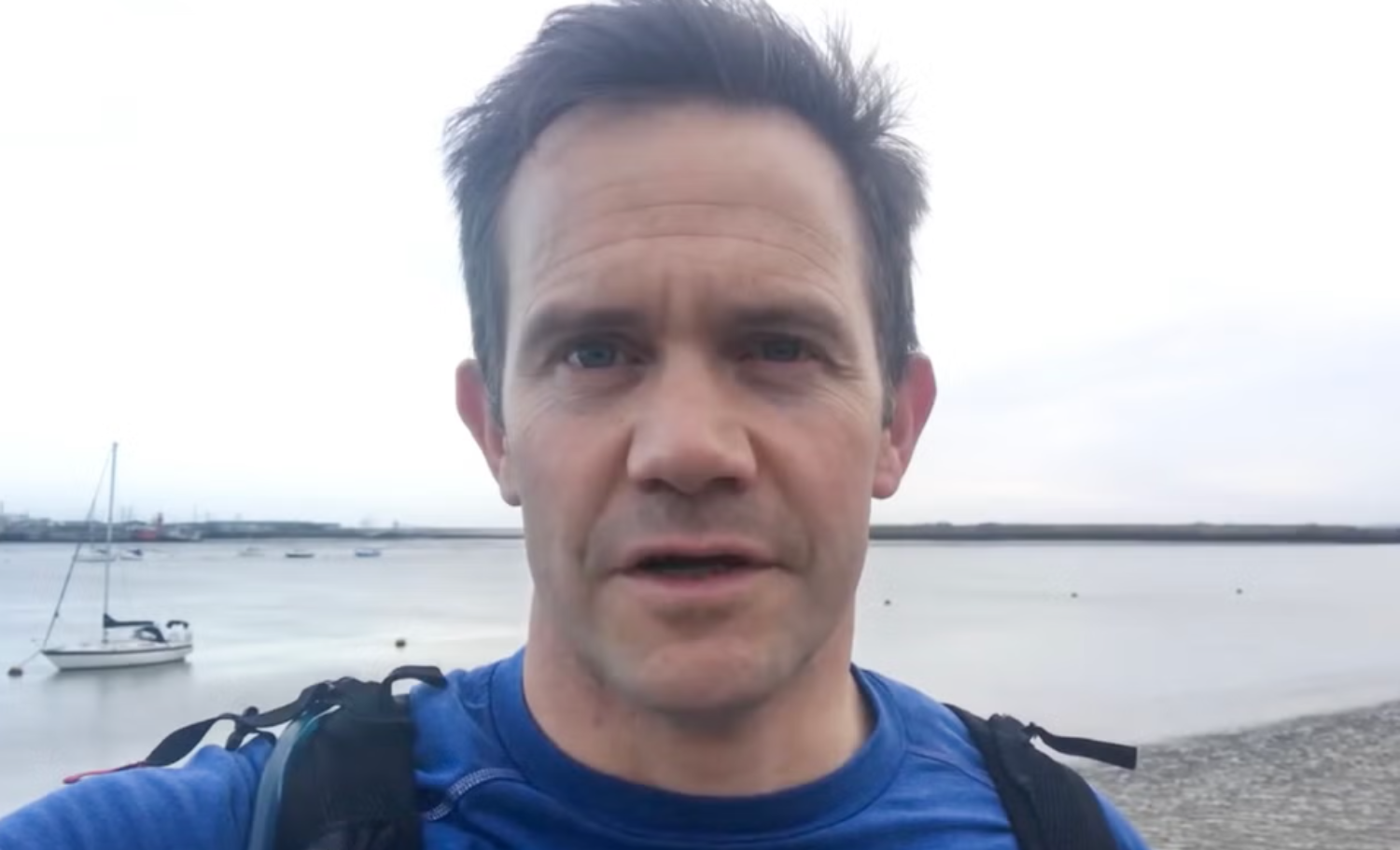
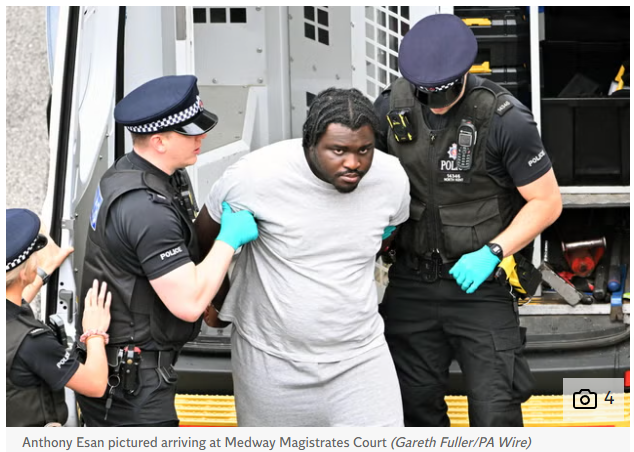






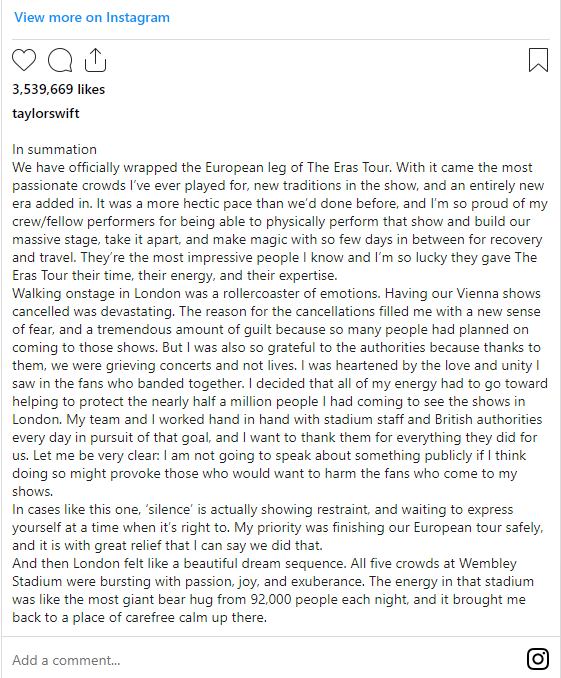



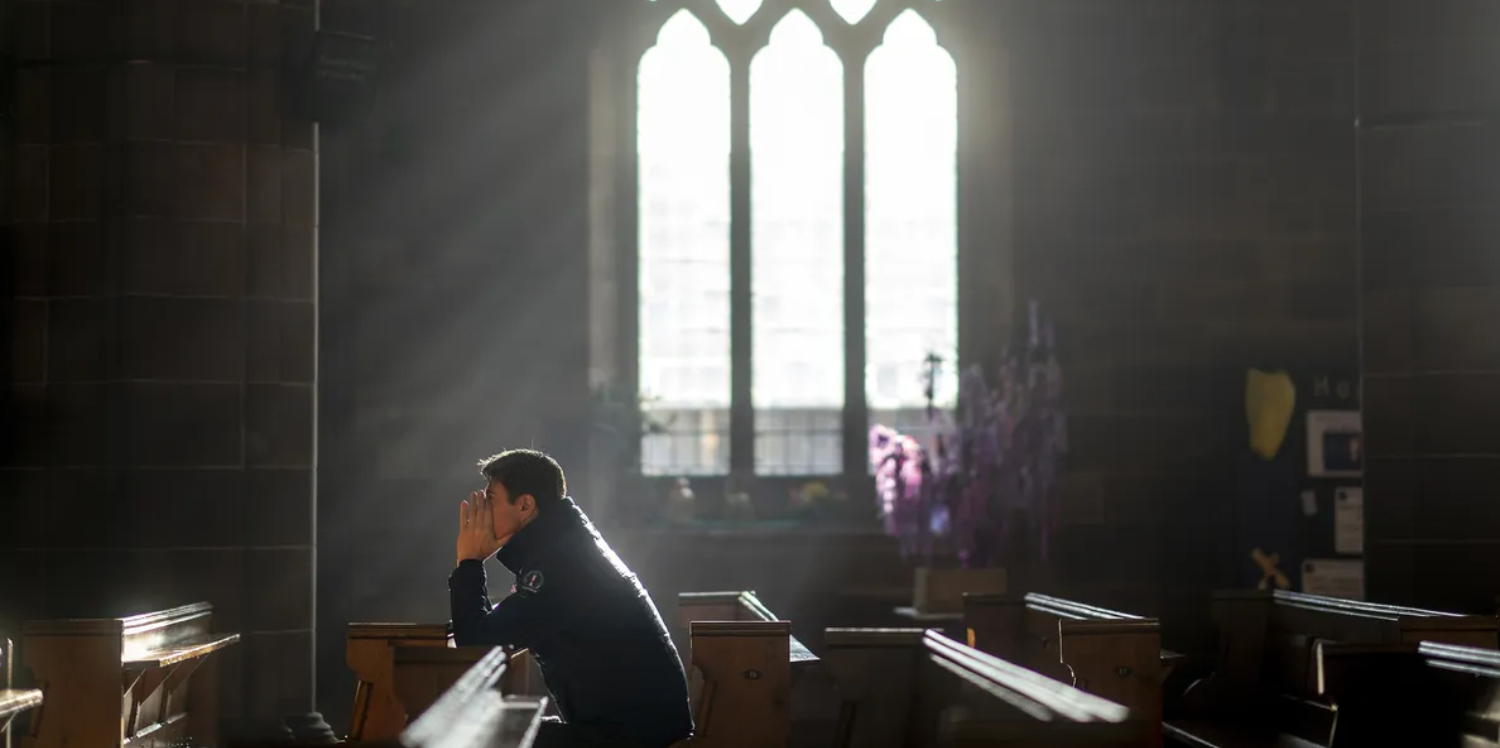
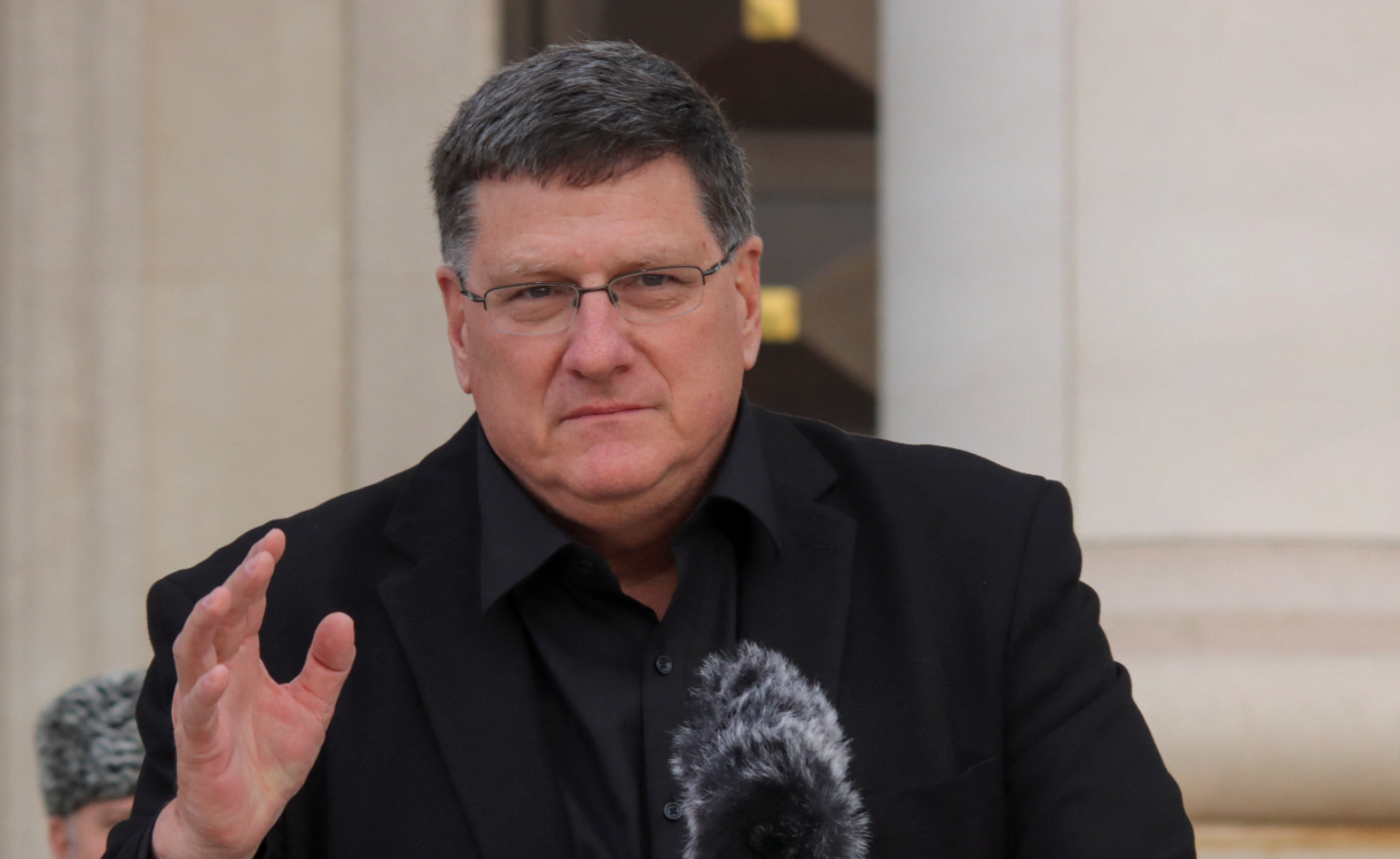



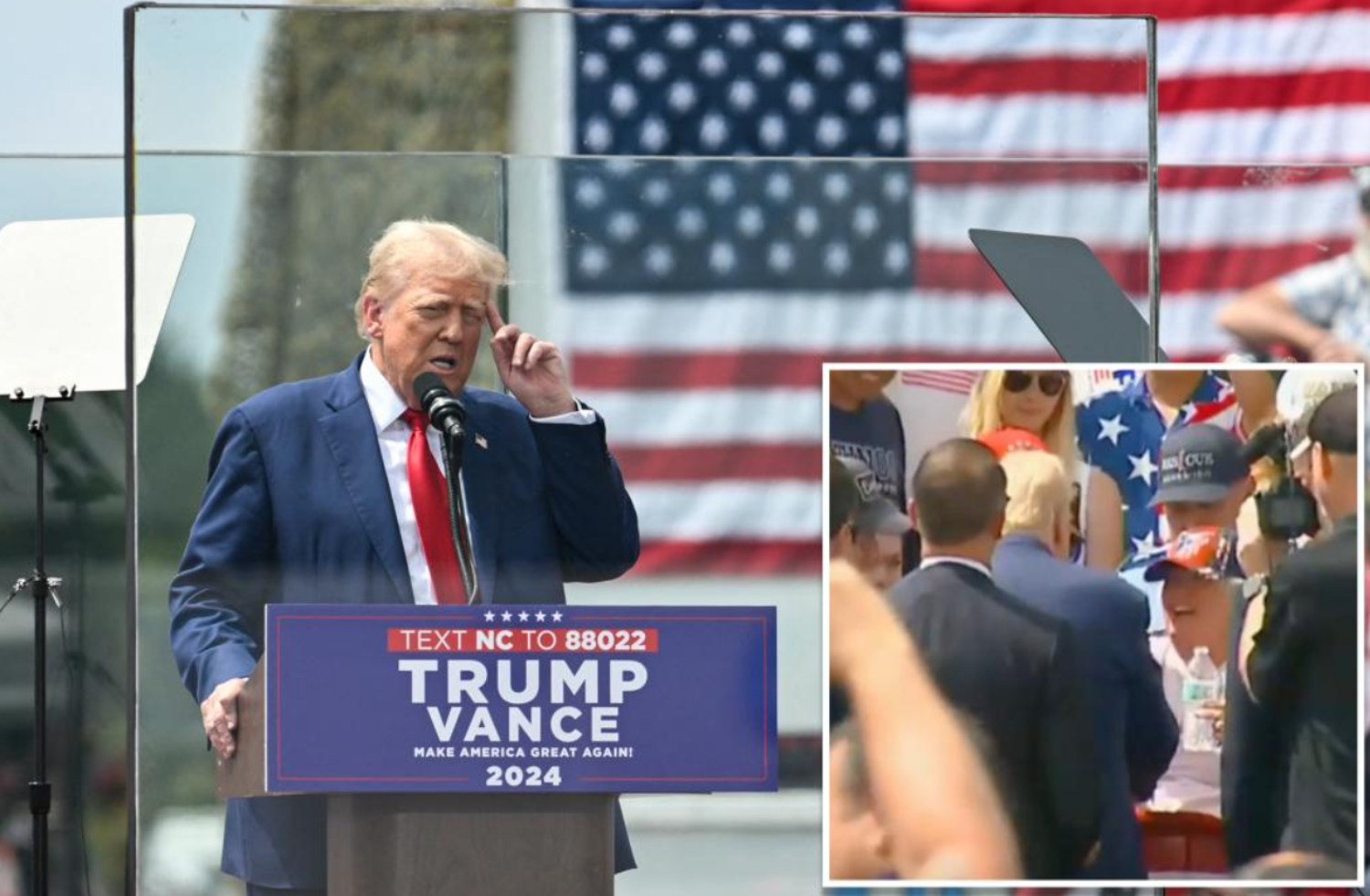

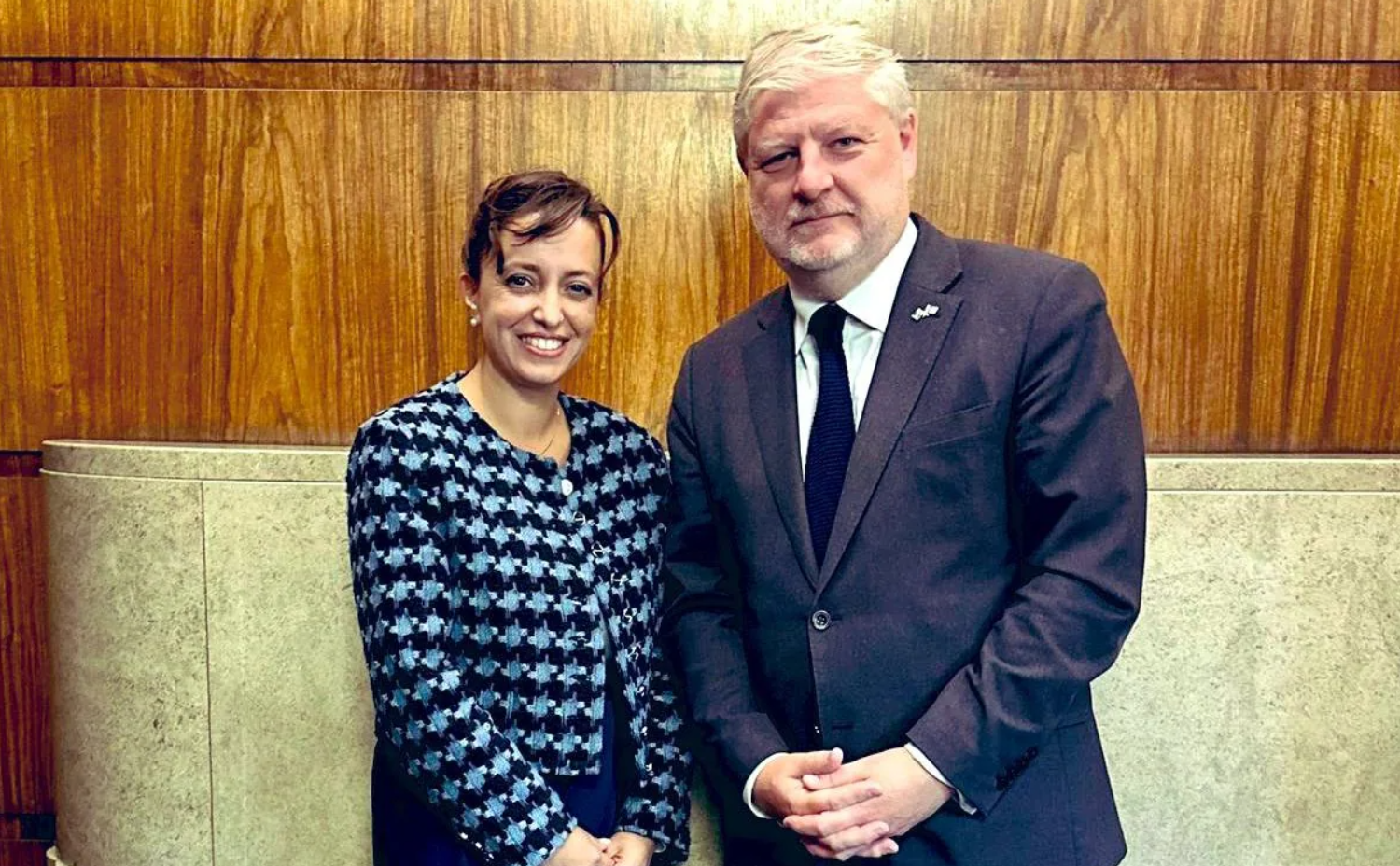
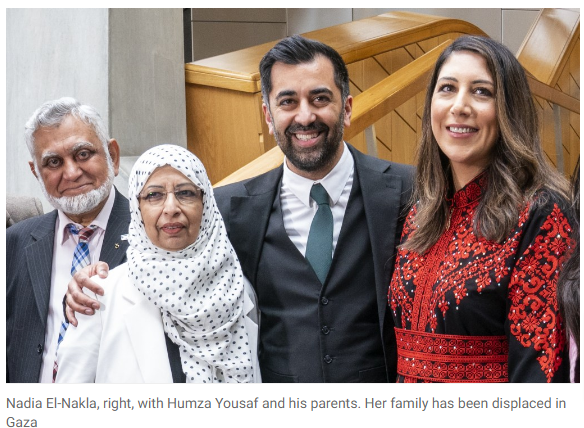
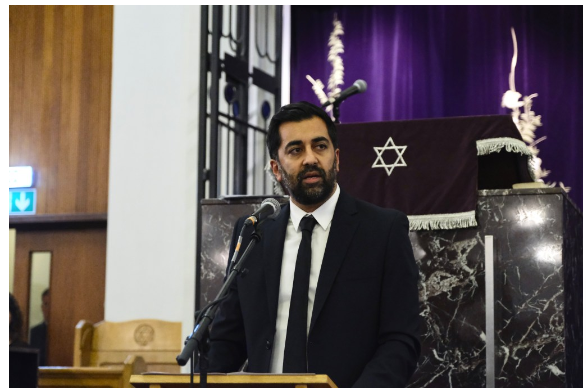
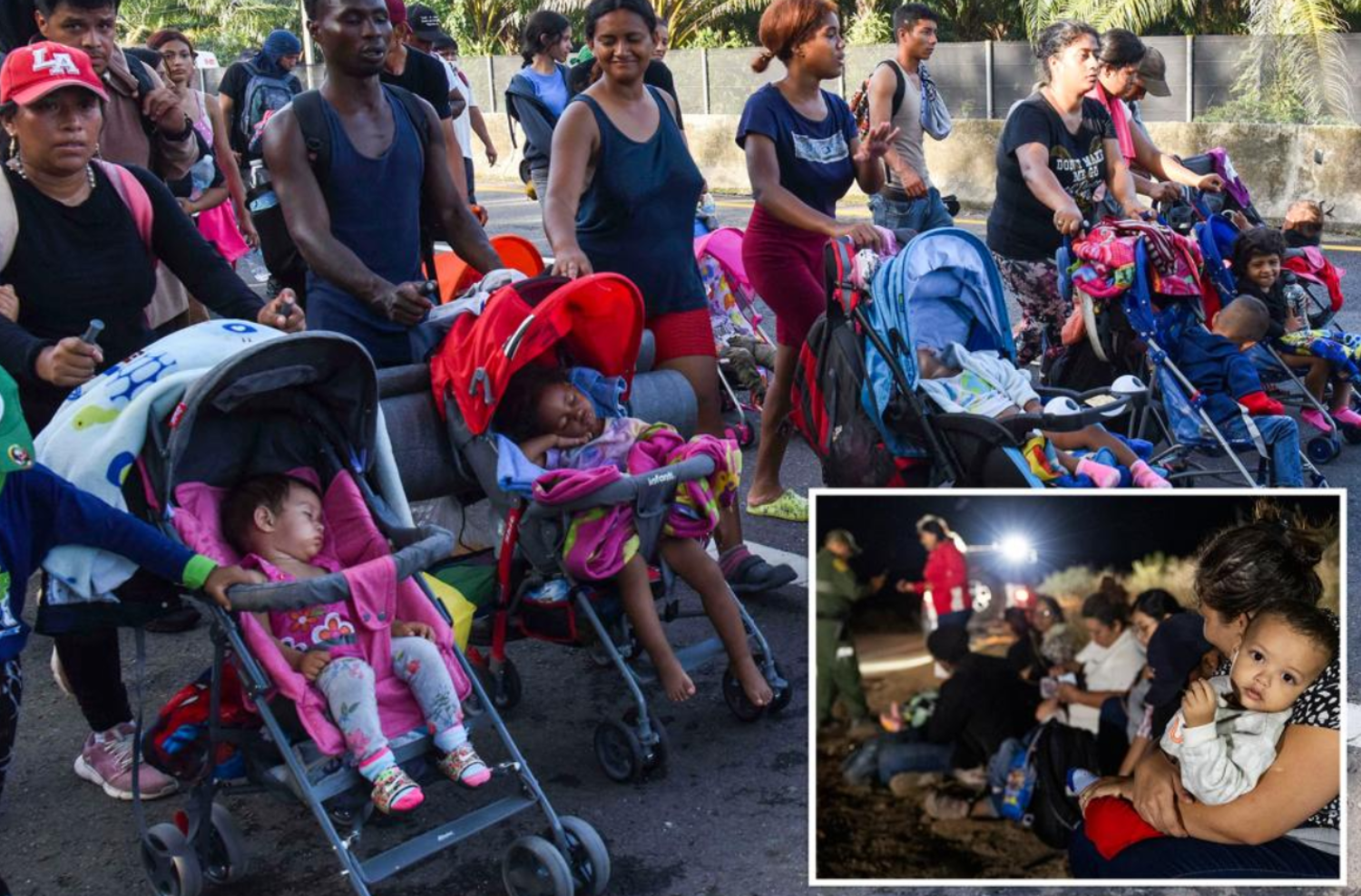
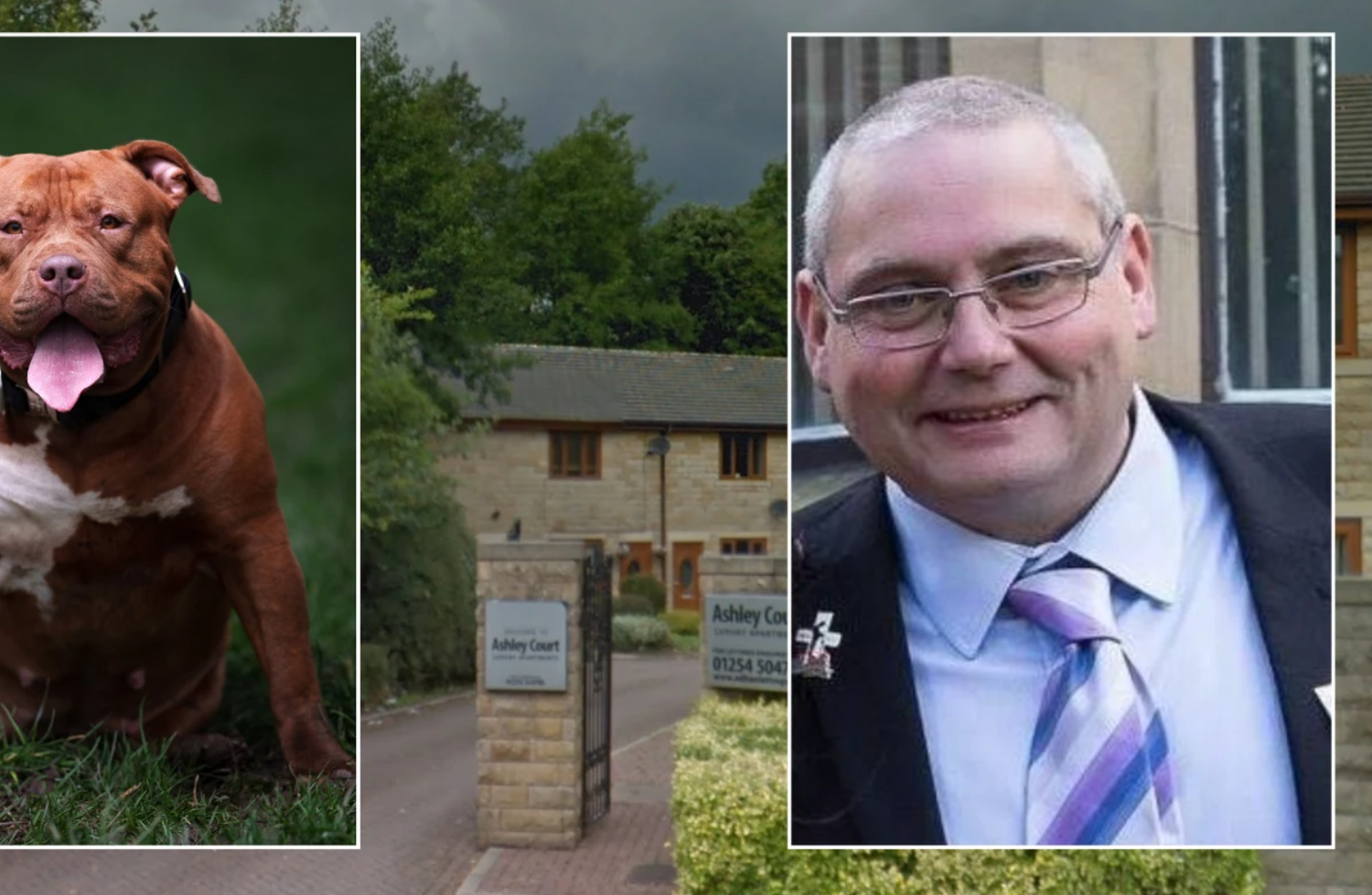

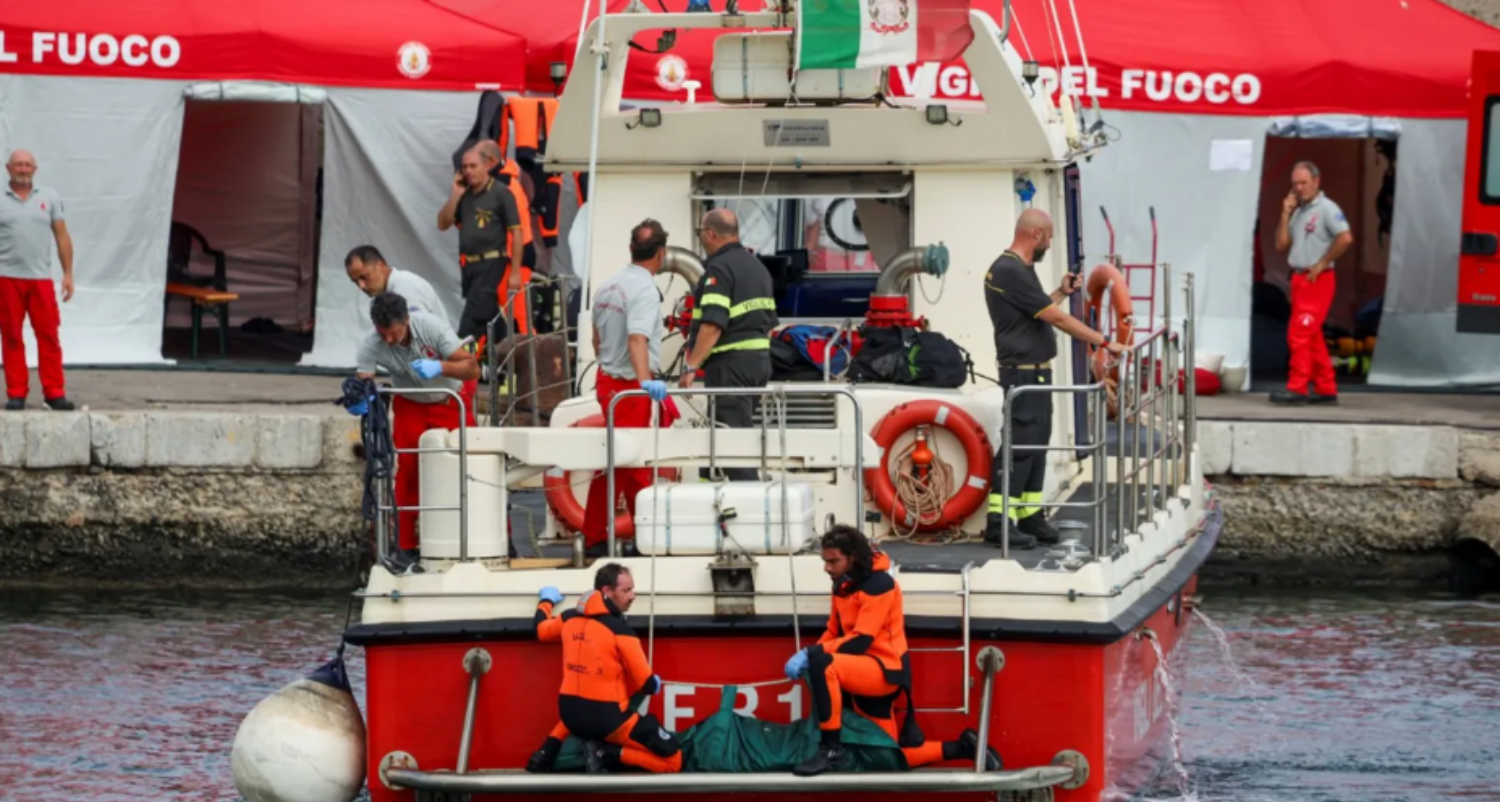

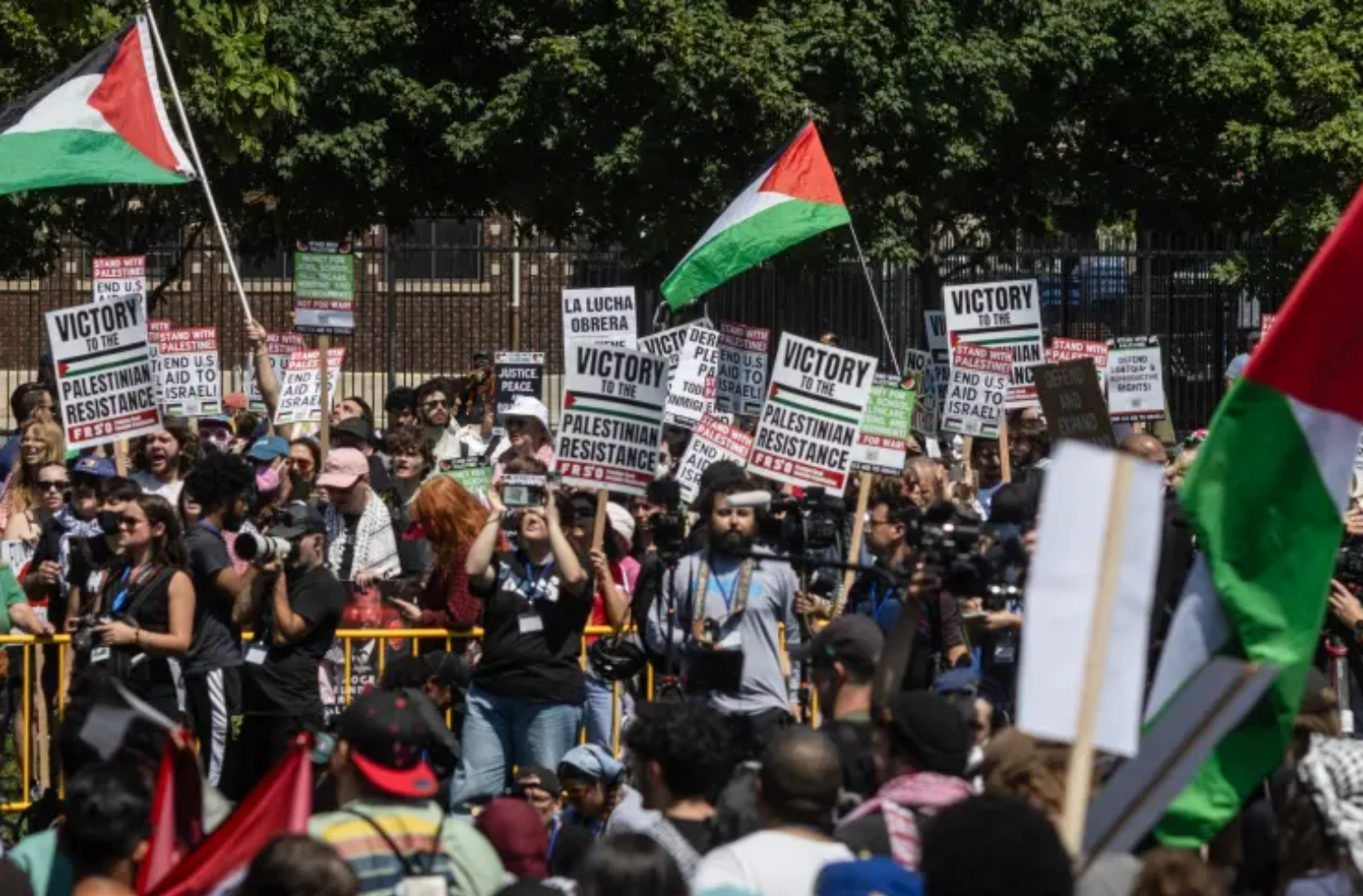
(1).png.953b235910cab4245f7b896d7de51670.png)
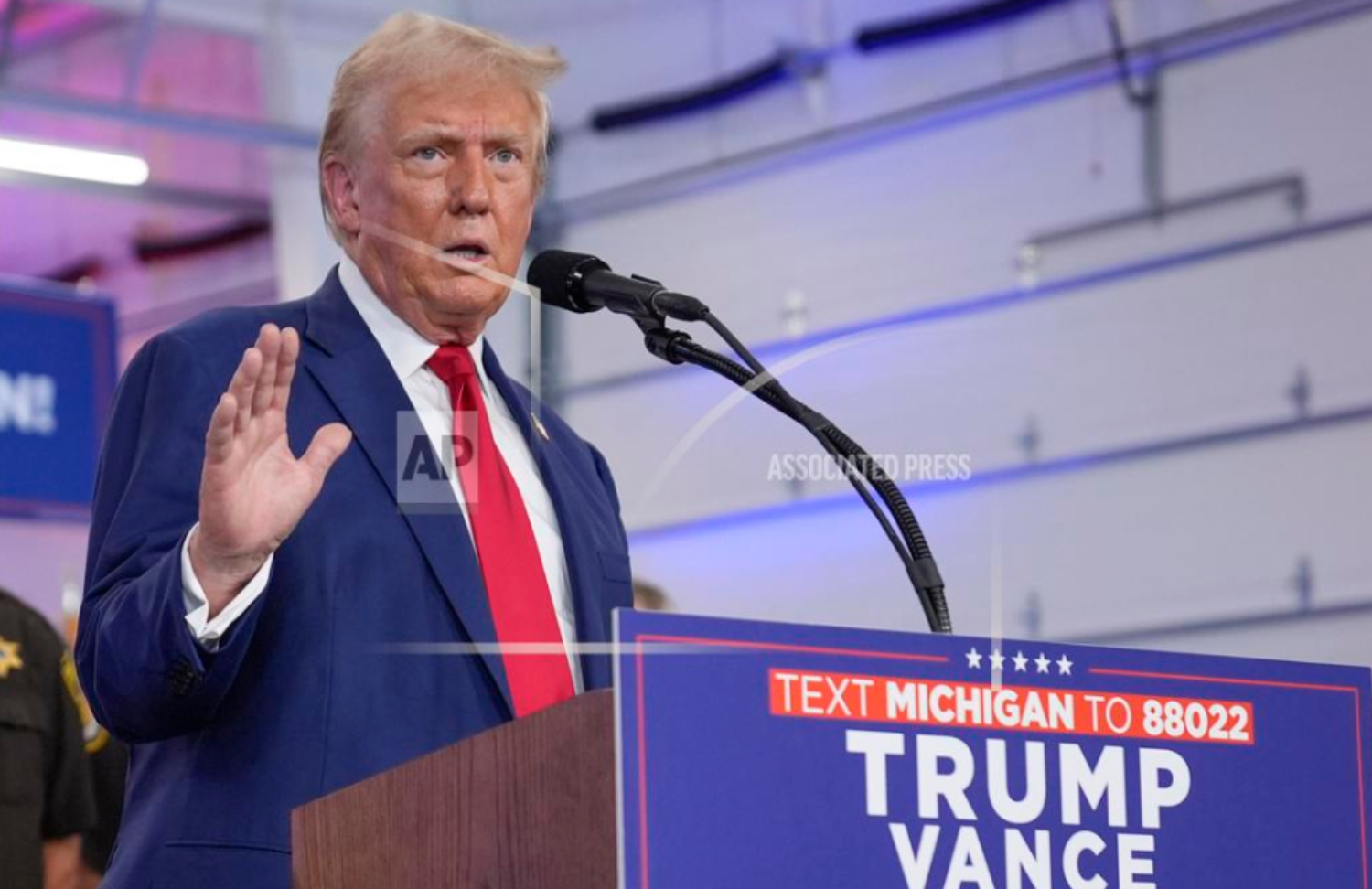
(1).png.03a3e49d6cd44f4b2a5711fd4efeb661.png)
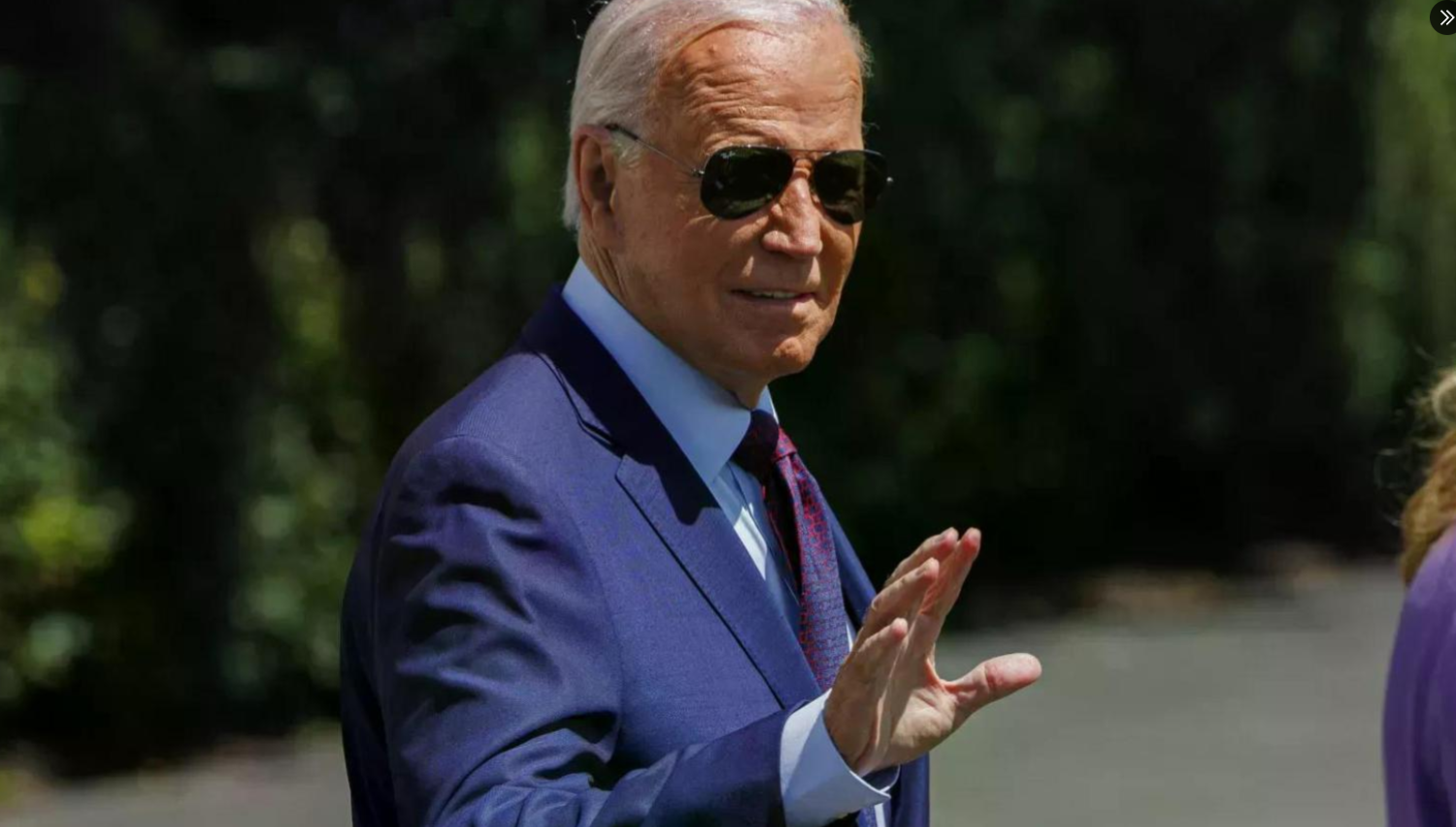
(1).png.420e34bbccc25dce2fb9e1982d630010.png)
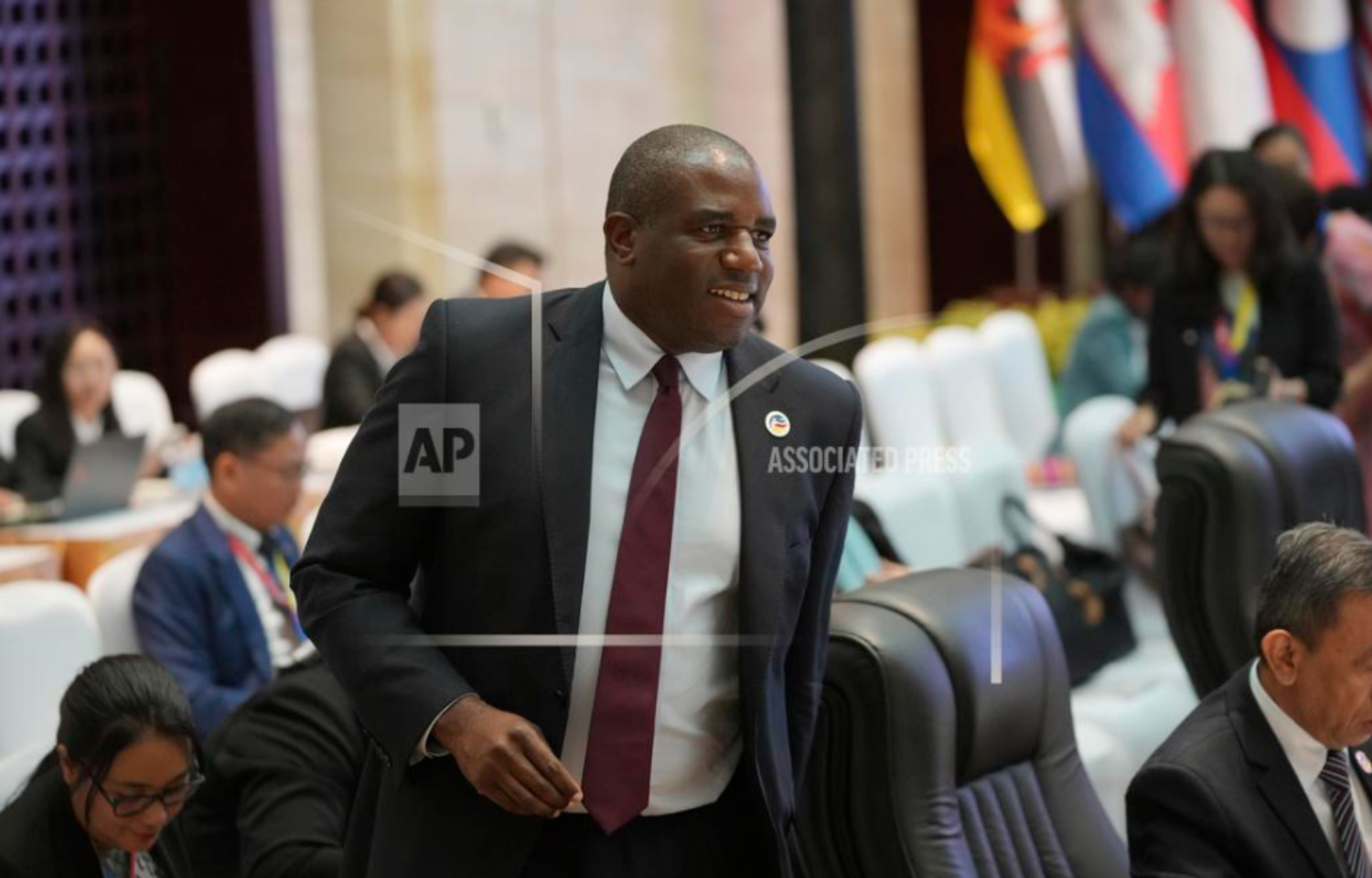
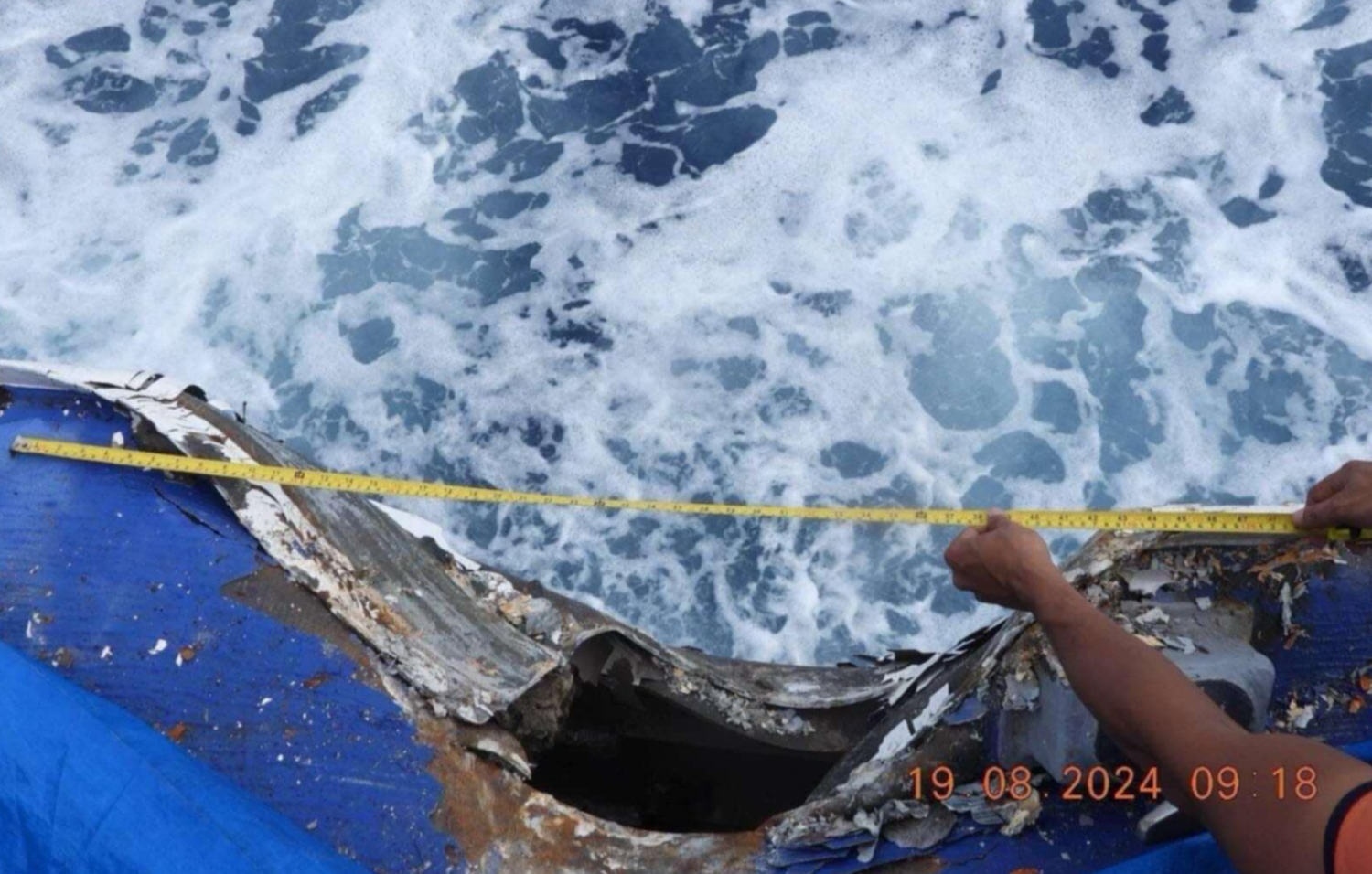
(1).png.526edc098bb6fec175e83094b475695f.png)
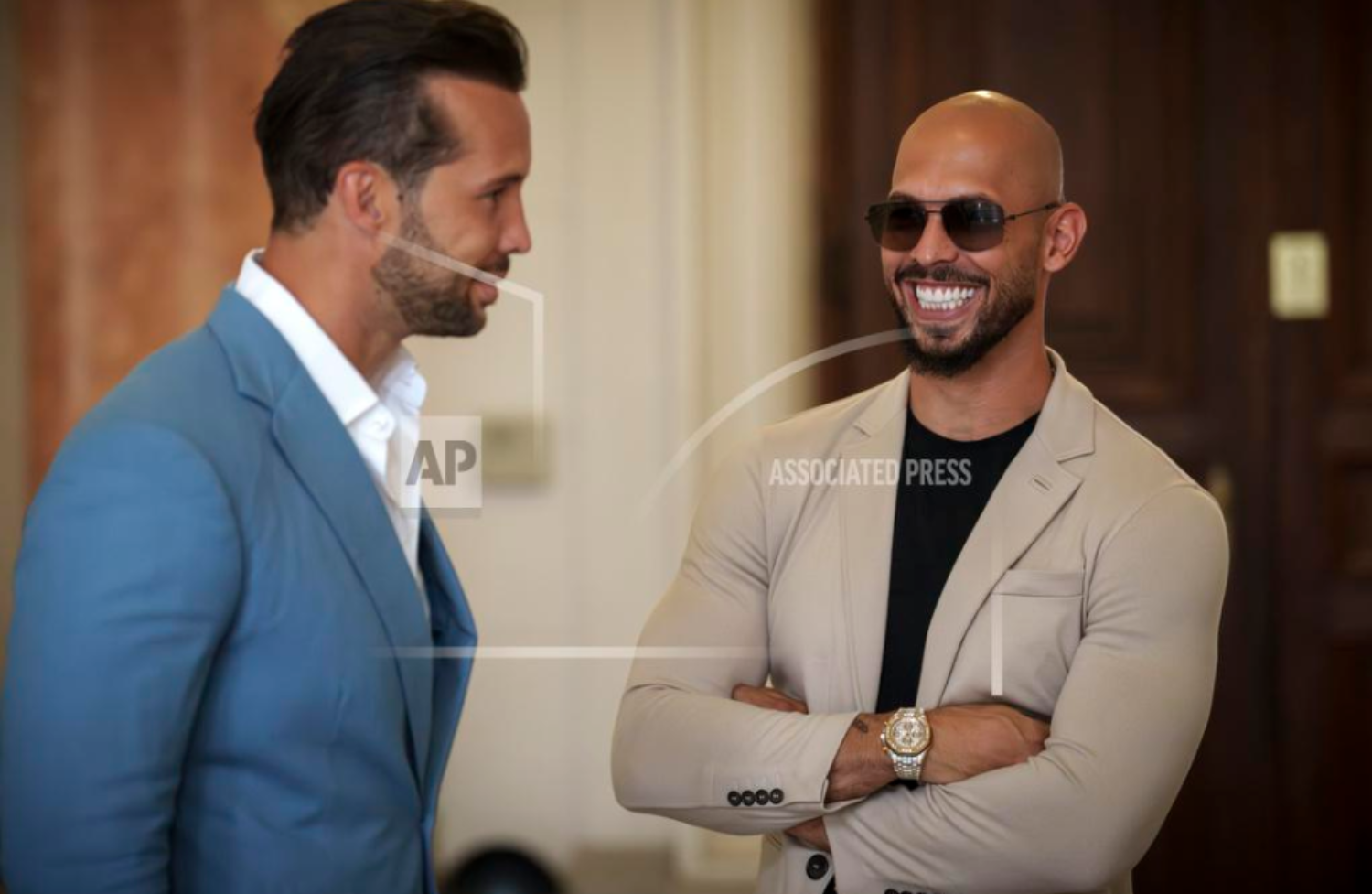
(1).png.f4ffd025065407d8130953b68ecc7647.png)
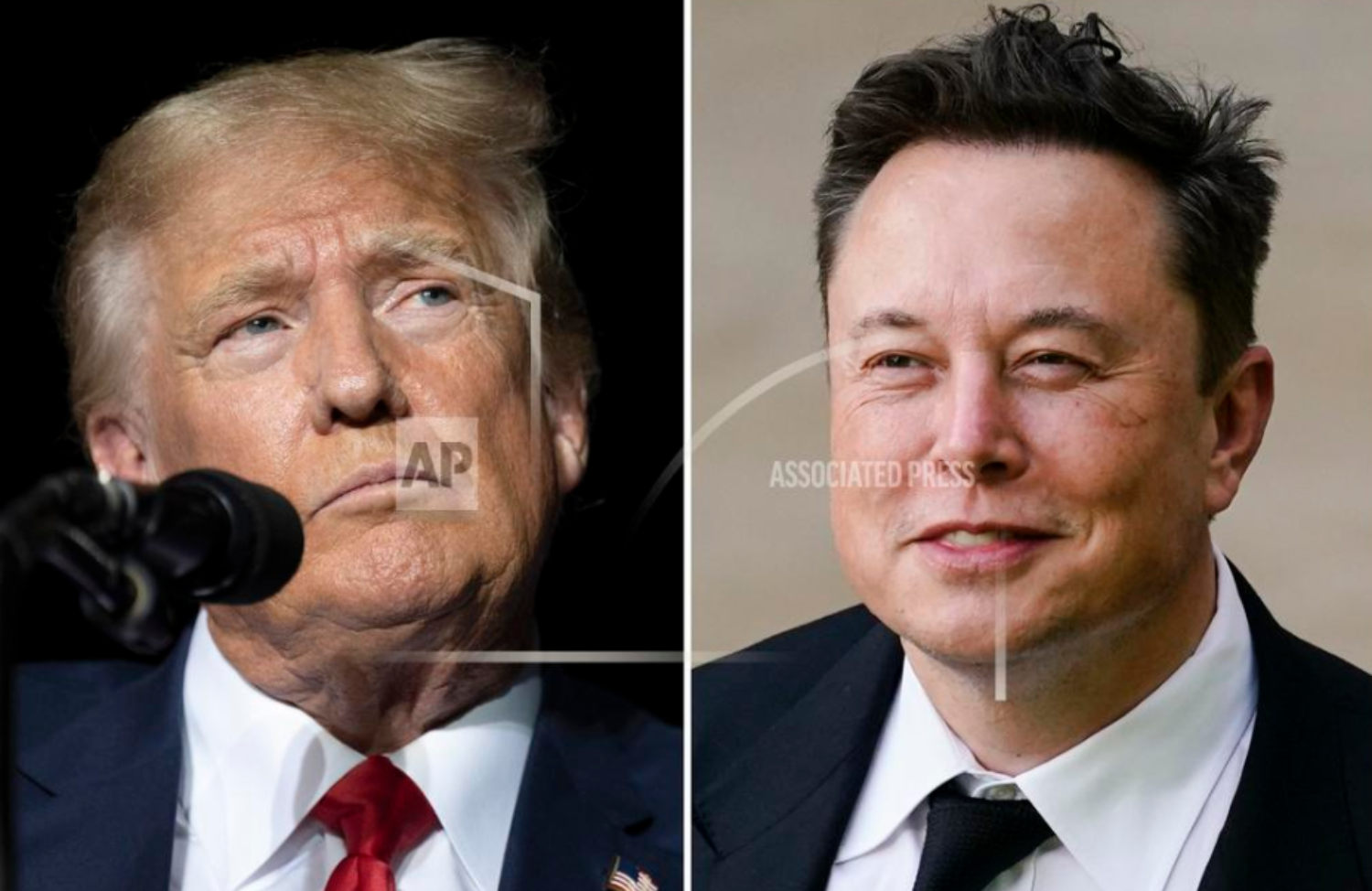
(1).png.6f4747c91019c6fa75d96b24326bf996.png)
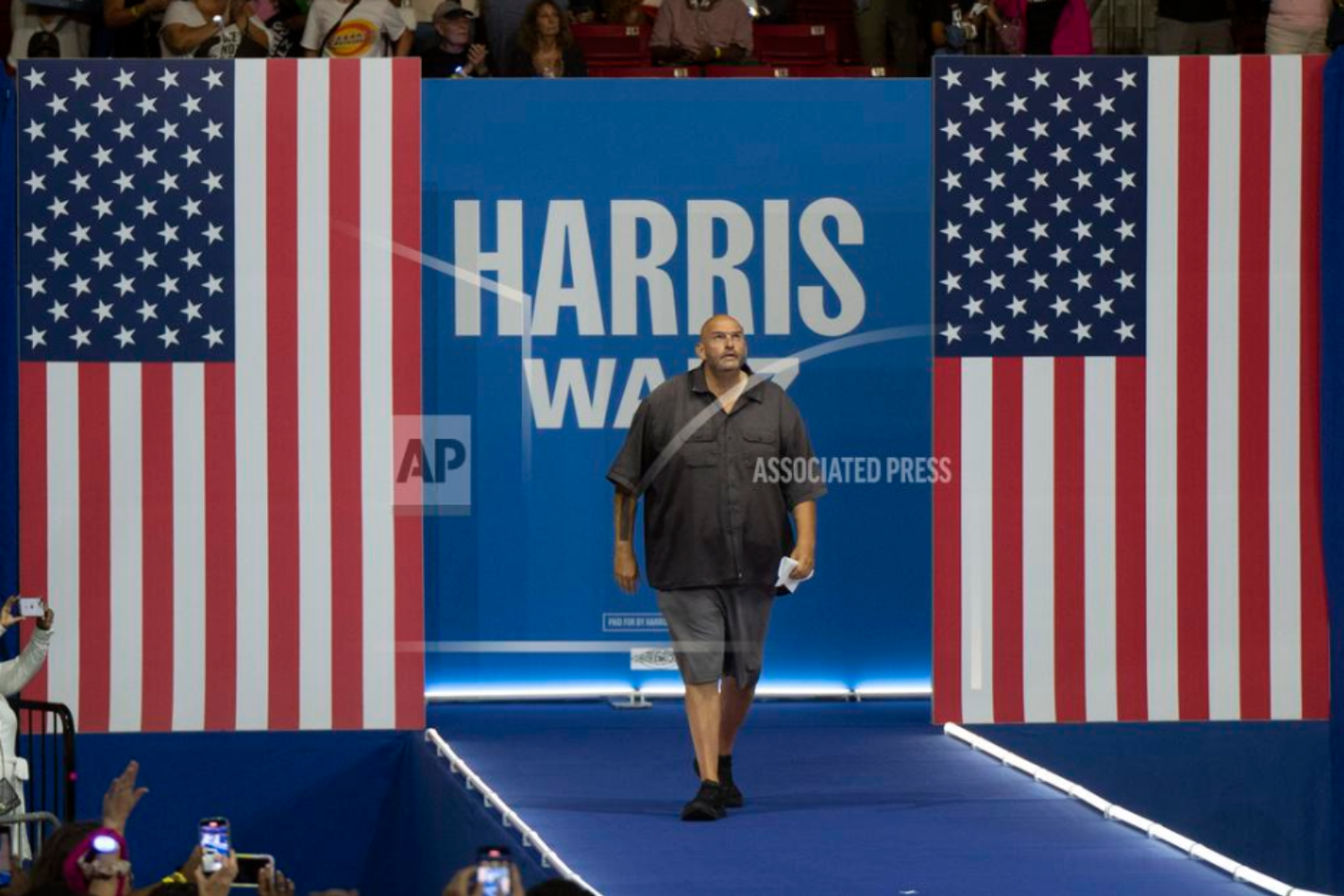
(1).png.dc1c59cdc01632f2cebe2bd6de029803.png)
